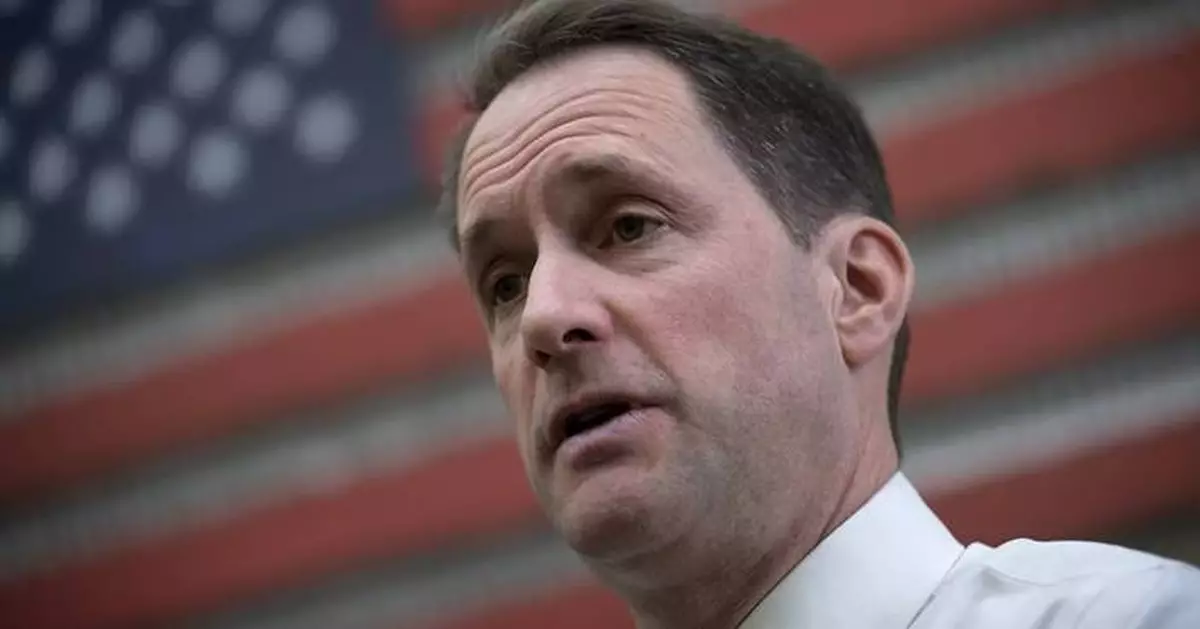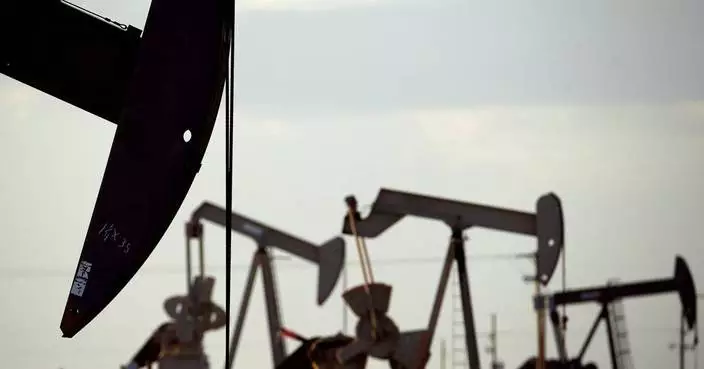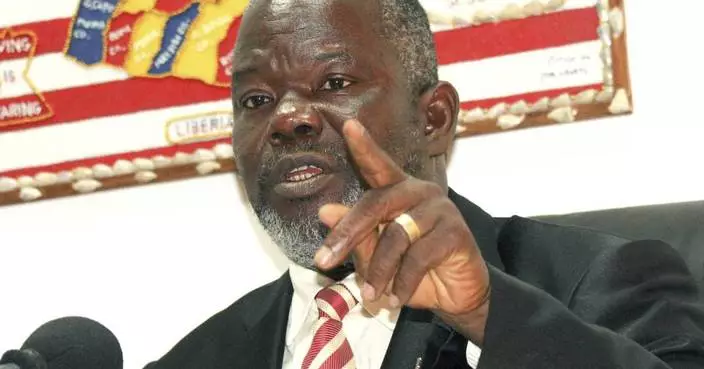WEST PALM BEACH, Fla. (AP) — Several Democratic members of Congress from Connecticut have been targeted by bomb threats on their homes, the lawmakers or their offices said Thursday.
Reps. Jim Himes, Joe Courtney and John Larson all reported that their homes were the subject of bomb threats. Police who responded said they found no evidence of a bomb on the lawmakers' properties.
This happened a day after a number of President-elect Donald Trump ’s most prominent Cabinet picks and appointees reported that they had received bomb threats and “swatting attacks," in which perpetrators initiate an emergency law enforcement response against a victim under false pretenses.
Courtney's Vernon home received a bomb threat while his wife and children were there, his office said.
Himes said Thursday morning he was notified of the threat against his home during a Thanksgiving celebration with his family. The U.S. Capitol Police, and Greenwich and Stamford police departments responded.
Hines extended his family's “utmost gratitude to our local law enforcement officers for their immediate action to ensure our safety.” He added: “There is no place for political violence in this country, and I hope that we may all continue through the holiday season with peace and civility.”
Larson also said Thursday that East Hartford Police responded to a bomb threat against his home.
The threats follow an election season marked by violence. In July, a gunman opened fire at a Trump rally in Butler, Pennsylvania, grazing him in the ear and killing one of his supporters. The Secret Service later thwarted a subsequent assassination attempt at Trump’s West Palm Beach, Florida, golf course when an agent spotted the barrel of a gun poking through a perimeter fence while Trump was golfing.
Among those who received threats Wednesday were New York Rep. Elise Stefanik, Trump’s pick to serve as the next ambassador to the United Nations; Matt Gaetz, Trump’s initial pick to serve as attorney general; Oregon Rep. Lori Chavez-DeRemer, whom Trump chose to lead the Department of Labor, and former New York congressman Lee Zeldin, who has been tapped to lead the Environmental Protection Agency.
Associated Press writer Jill Colvin in New York contributed to this report.
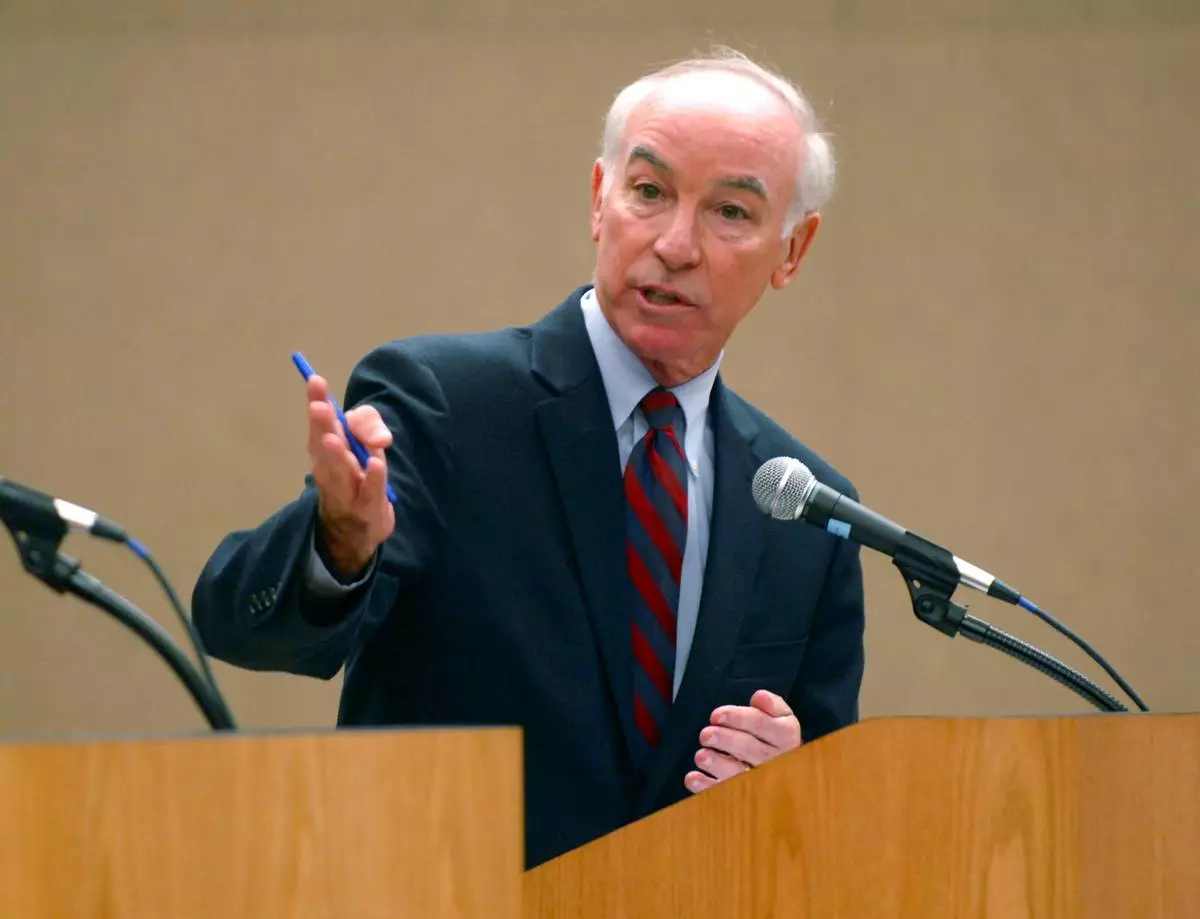
FILE - Democratic incumbent U.S. Rep. Joe Courtney speaks during the 2nd Congressional debate at Eastern Connecticut State University in Willimantic, Conn., Oct. 21, 2010. (Aaron Flaum/The Bulletin via AP, File)

FILE - Rep. John Larson, D-Conn., joined at right by Rep. Earl Blumenauer, D-Ore., questions House Ways and Means Committee Chairman Kevin Brady, R-Texas, on Capitol Hill in Washington, Nov. 6, 2017. (AP Photo/J. Scott Applewhite, File)
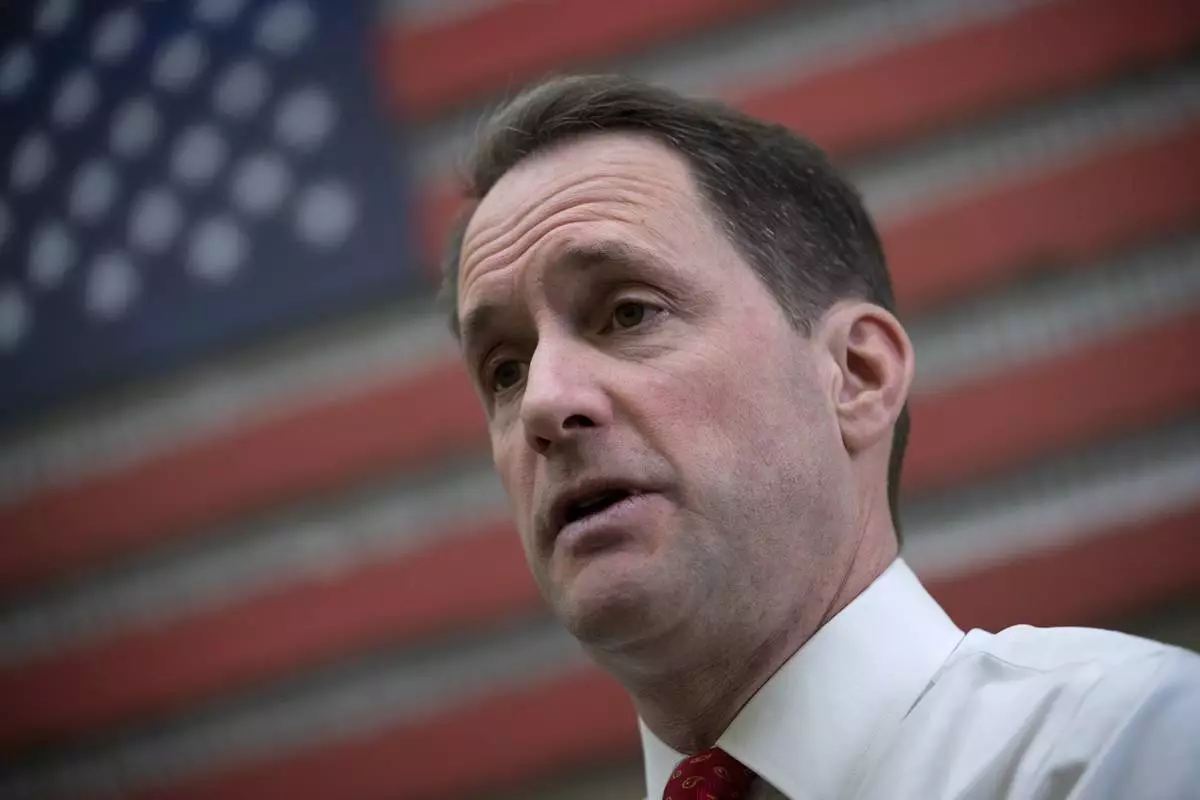
FILE - Rep. Jim Himes, D-Conn., speaks with The Associated Press about his new role on the House Intelligence Committee, in his office on Capitol Hill in Washington, Feb. 1, 2023. (AP Photo/J. Scott Applewhite, File)
BEIRUT (AP) — Israel on Thursday carried out its first airstrike on Lebanon since a truce with Hezbollah announced this week, saying it targeted the militant group's activity at a rocket storage facility in southern Lebanon that breached the ceasefire.
Lebanese authorities reported scattered incidents of Israeli mortar attacks, strikes and shots fired that wounded two people trying to return to southern Lebanon. Lebanon's state-run media said the wounded were civilians, while the Israeli military described them as suspects who violated the terms of the truce that ended more than a year of conflict between Israel and Hezbollah.
The bursts of violence — with no reports of serious casualties — reflected the uneasy nature of the ceasefire that otherwise appeared to hold Thursday as Lebanese troops began to deploy in parts of southern Lebanon, the eastern Bekaa Valley and the southern suburbs of Beirut, where Hezbollah has based its operations.
The Lebanese military said it was setting up temporary checkpoints and detonating unexploded ordnance in hopes of helping displaced civilians return to their homes.
Some 1.2 million people were displaced in Lebanon during the country's deadliest war in decades. Thousands of residents, their cars stacked high with mattresses and full of belongings, began to make the odyssey back to their war-ravaged towns on Wednesday, after the ceasefire took effect.
But their movements remain constrained. The Lebanese and Israeli militaries have ordered civilians displaced from border communities to steer clear of areas where Israeli troops are still in position.
On Thursday, the Israeli military said its troops opened fire at “several suspects” who arrived in their vehicles to certain parts of southern Lebanon in violation of the truce. The statement did not give further details.
Lebanon’s state-run National News Agency said Israeli fire wounded two civilians in Markaba, a village close to the border that has been a scene of intense fighting over the past 14 months. It also reported Israeli tank fire hitting some villages and farms in the south, causing no casualties.
Col. Avichay Adraee, an Arabic language spokesman for the Israeli military, announced that a nighttime curfew for Lebanese residents south of the Litani River remained in effect, banning movement from 5 p.m. Thursday until 7 a.m. Friday.
The Lebanese army accused Israel of breaking the ceasefire several times on Thursday by conducting strikes on Lebanon with “various weapons” and continuing to patrol and surveil Lebanese skies with warplanes and drones. The army said it was “following up on these violations in coordination with the relevant authorities,” without elaborating.
An Associated Press reporter in northern Israel heard Israeli drones buzzing and the sporadic crackle of machine-gun fire across the border in Lebanon.
Hezbollah has not issued any public statements on the alleged Israeli ceasefire violations but Hezbollah lawmaker Hassan Fadlallah acknowledged the incidents. When asked by reporters how Hezbollah would respond, he was cautious.
“We don’t want to rush things,” he said, adding that Hezbollah “has the right to self-defense.”
The truce between Israel and the Iran-backed Hezbollah, brokered by the United States and France, calls for an initial two-month ceasefire in which the militants are to withdraw north of the Litani River and Israeli forces are to return to their side of the border.
Under the terms of the agreement, Lebanese troops will gradually deploy further the south as Israeli troops pull out, said a Lebanese military official, speaking on condition of anonymity because they were not authorized to brief media.
The buffer zone would be patrolled by U.N. peacekeepers and Lebanese troops, which have not been a party to the conflict between Israel and Hezbollah. Lebanon's military on Thursday shared photos showing troops clearing roads of destroyed vehicles, crushed houses and unexploded bombs.
For many Lebanese, the pause in fighting brought relief — but also heartache. Displaced families returned home to sift through the bombed-out ruins of their shops and apartments.
Drone footage of Qana in southern Lebanon, taken Thursday, shows ghostly, battered neighborhoods with smashed homes and giant craters gouged into the ground — the scale of destruction chilling in a town that has become synonymous with the killing of civilians in past wars.
During Israel's 2006 war with Hezbollah, an Israeli strike on a residential building killed 27 civilians, a third of them children, according to U.N. figures. During its 1996 offensive, Israeli artillery shelling on a United Nations compound housing hundreds of displaced people in Qana killed at least 100 civilians and wounded scores more people.
“We are a town of martyrs,” said Aref AbouKhalil, a 29-year-old taxi driver who checked on his ruined family home in Qana on Thursday. Those who lost family and friends in the Israeli bombardment of Qana over the past year, he said, felt the grief of 2006 and 1996 all over again.
“They're determined to destroy us, they keep trying, and now the town is destroyed,” he said of Israeli strikes. "But we’ll build it again."
Israel says it plans to withdraw its forces, but only as it ensures Hezbollah observes the agreement.
“Any deviation from this agreement will be enforced with fire,” said Lt. Gen. Herzl Halevi, the Israeli military’s chief of staff. "We are now moving toward new phase, where the same determination that brought us to this agreement will be applied in enforcement."
Of the 50,000 people who fled northern Israeli border communities because of constant Hezbollah attacks, Halevi said that ensuring their swift return was “our duty to them, and our duty to ourselves.”
A rare quiet, compared to recent months, fell over the border towns Thursday. There were air raid sirens warning of incoming Hezbollah rockets, no deafening explosions shaking the ground.
But with the towns largely deserted and residents relocated, Halevi's remarks signaled the military was not encouraging Israelis to return just yet.
In Menara, an Israeli community on the border with views into Lebanon, around three quarters of homes are damaged, some with collapsed roofs and burnt-out interiors. A few residents could be seen gathering their belongings there on Thursday before leaving again.
Despite the smattering of attacks, the clearest sign of the truce Thursday was a reduction in the overall level of violence in Lebanon since the conflict began a day after Hamas’ Oct. 7, 2023 assault out of Gaza, when Hezbollah began firing rockets, drones and missiles in solidarity with the Palestinian militant group.
Israel retaliated with airstrikes, and the conflict steadily intensified before becoming an all-out war in mid-September. The war in Gaza is still raging with no end in sight.
More than 3,760 people were killed by Israeli fire in Lebanon during the conflict, many of them civilians, according to Lebanese health officials. The fighting killed more than 70 people in Israel — over half of them civilians — as well as dozens of Israeli soldiers fighting in southern Lebanon.
Frankel reported from Menara, Israel. Associated Press writers Natalie Melzer in Nahariya, Israel, and Isabel DeBre in La Paz, Bolivia, contributed to this report.
Follow AP’s war coverage at https://apnews.com/hub/israel-hamas-war
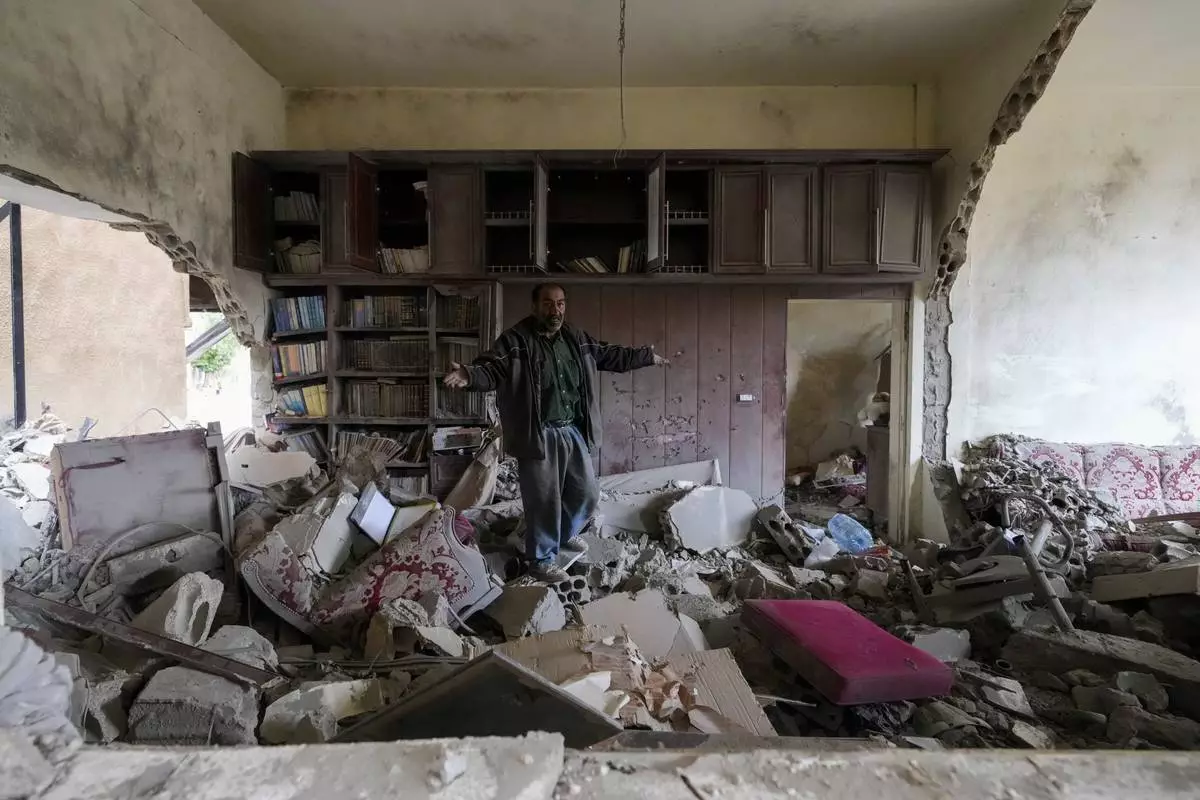
A man inspects a house that was destroyed in Israeli airstrikes in Baalbek, eastern Lebanon, Thursday, Nov. 28, 2024. (AP Photo/Hassan Ammar)
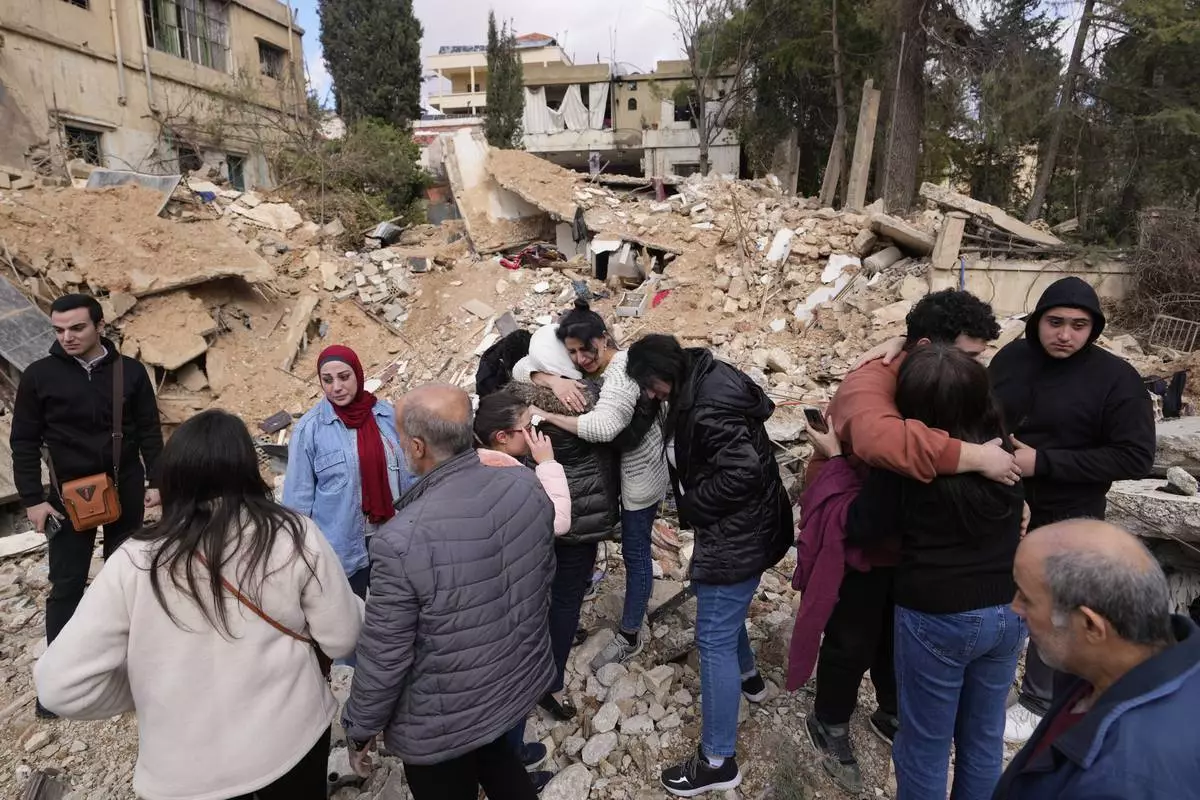
Displaced residents hug as they stand in front of the rubble of their destroyed house in Baalbek, eastern Lebanon, Thursday, Nov. 28, 2024. (AP Photo/Hassan Ammar)
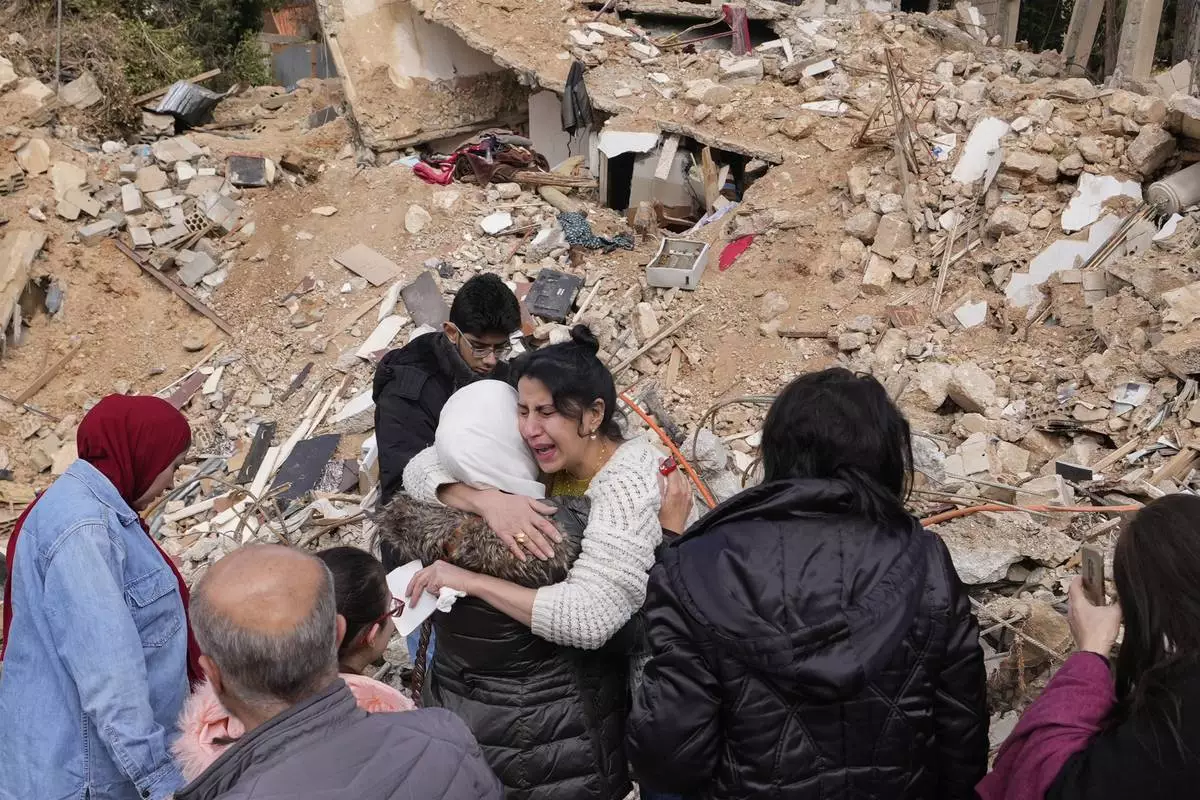
Displaced residents hug as they stand in front of the rubble of their destroyed house in Baalbek, eastern Lebanon, Thursday, Nov. 28, 2024. (AP Photo/Hassan Ammar)
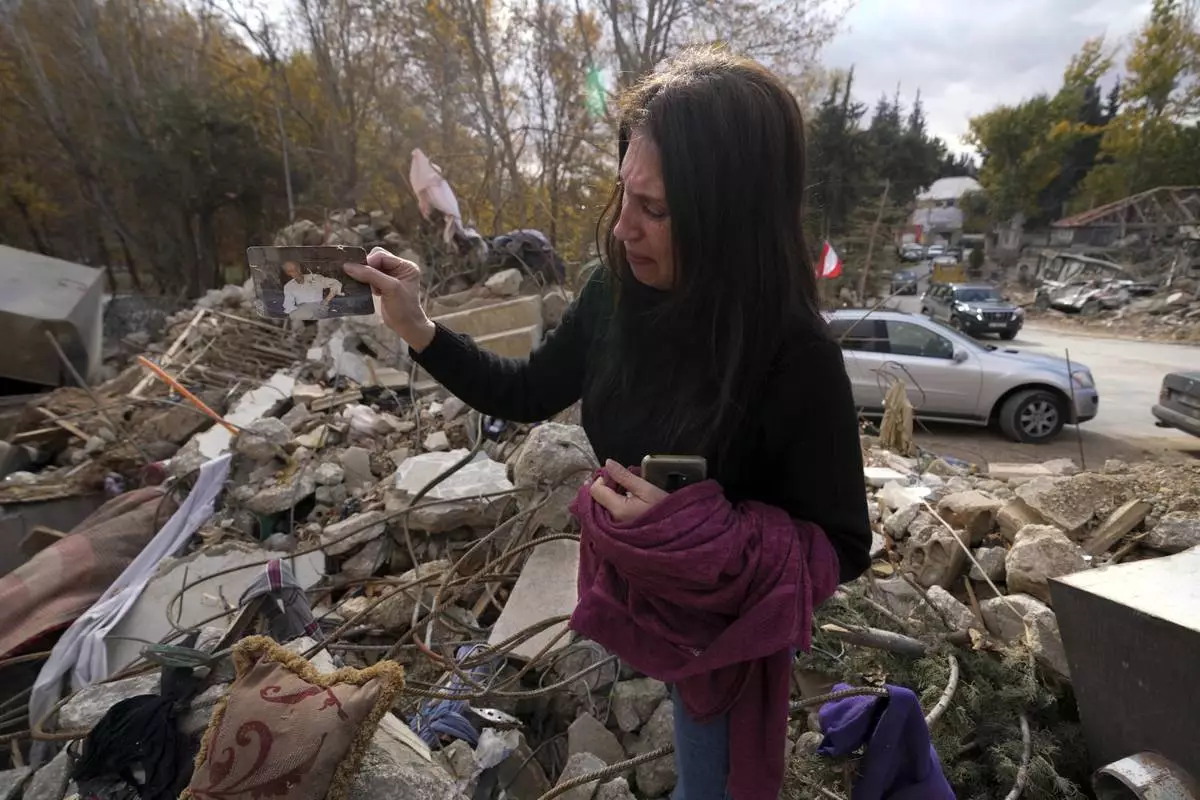
Zeina Rida Jawhari, reacts after recovering a photo of her father from the rubble of her destroyed house in Baalbek, eastern Lebanon, Thursday, Nov. 28, 2024. (AP Photo/Hassan Ammar)
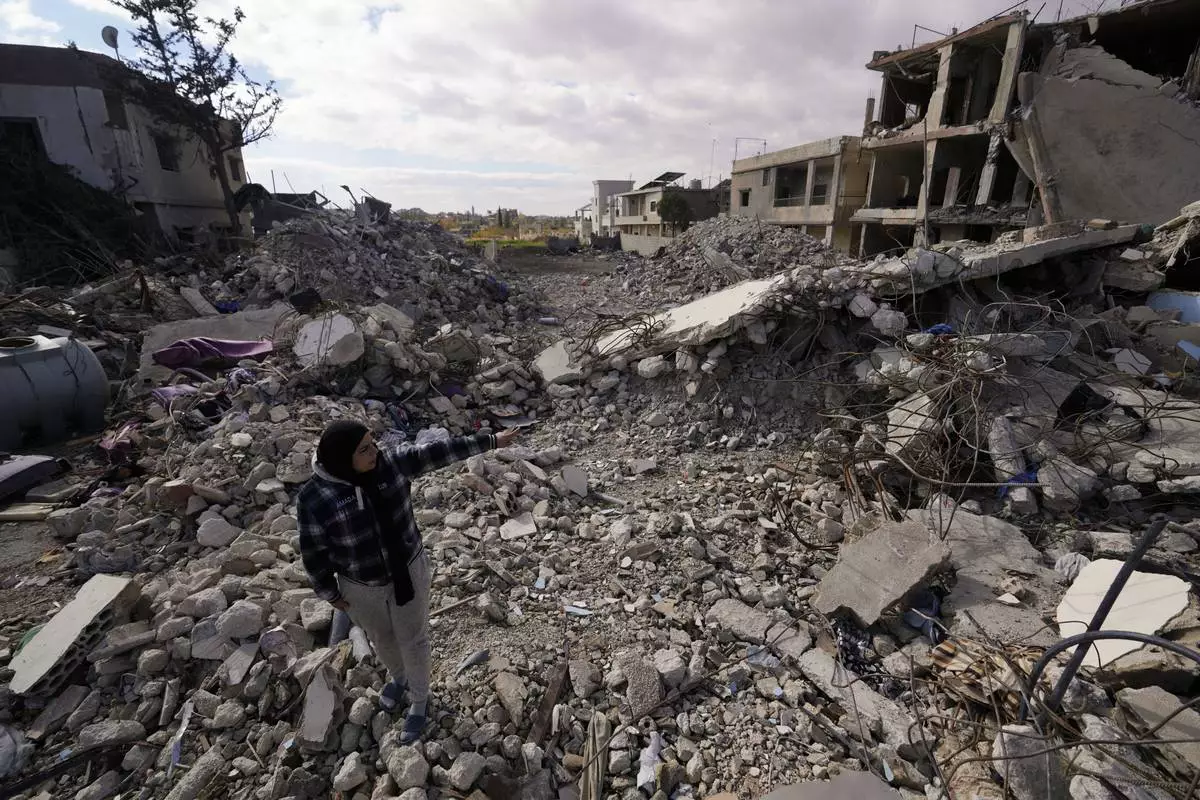
A woman inspects buildings destroyed in Israeli airstrikes in Baalbek, eastern Lebanon, Thursday, Nov. 28, 2024. (AP Photo/Hassan Ammar)
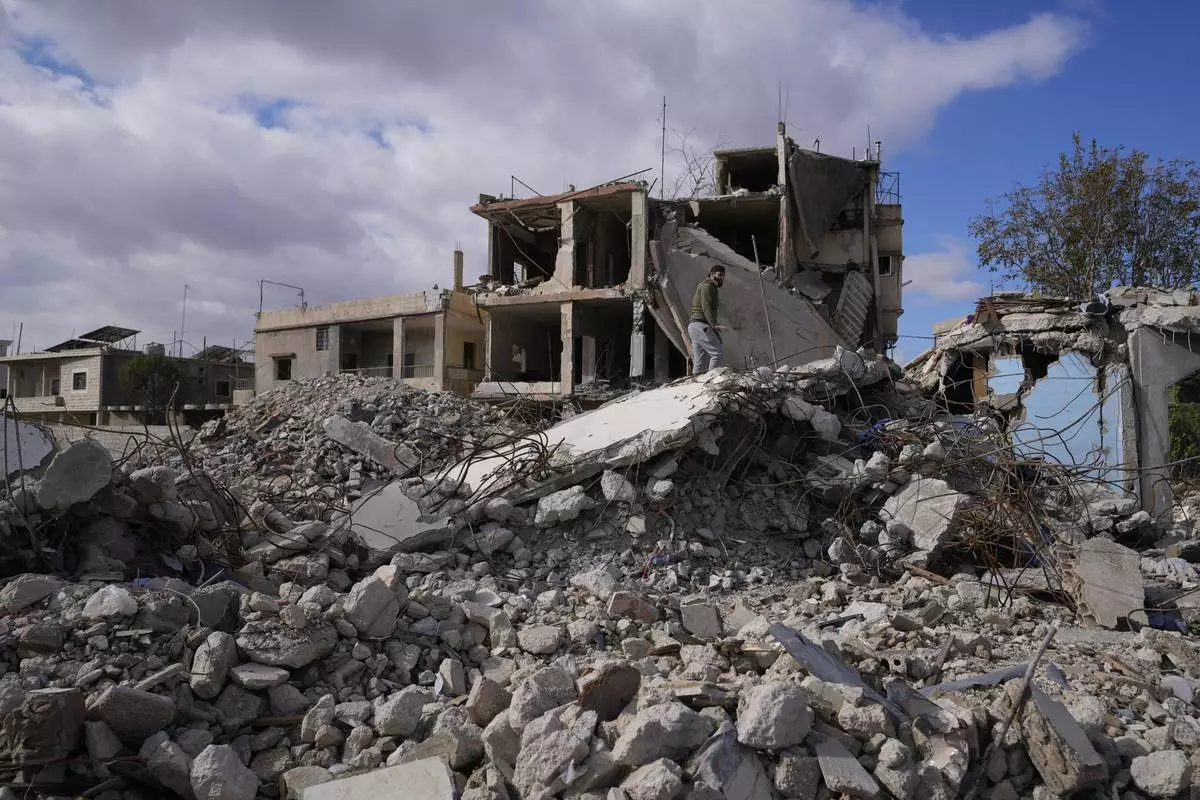
A man inspects a building destroyed in Israeli airstrikes in Baalbek, eastern Lebanon, Thursday, Nov. 28, 2024. (AP Photo/Hassan Ammar)
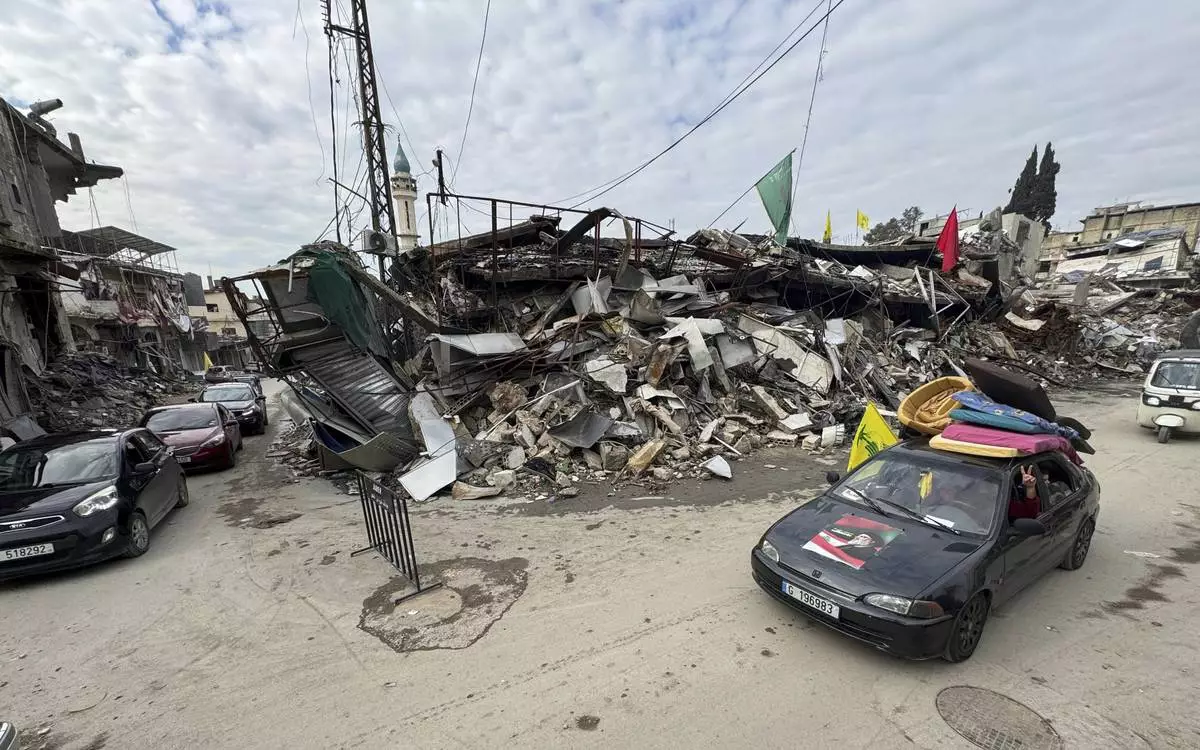
Displaced residents drive past destroyed buildings as they return to Nabatiyeh, southern Lebanon, Thursday, Nov. 28, 2024 following a ceasefire between Israel and Hezbollah that went into effect on Wednesday. (AP Photo/Bassam Hatoum)
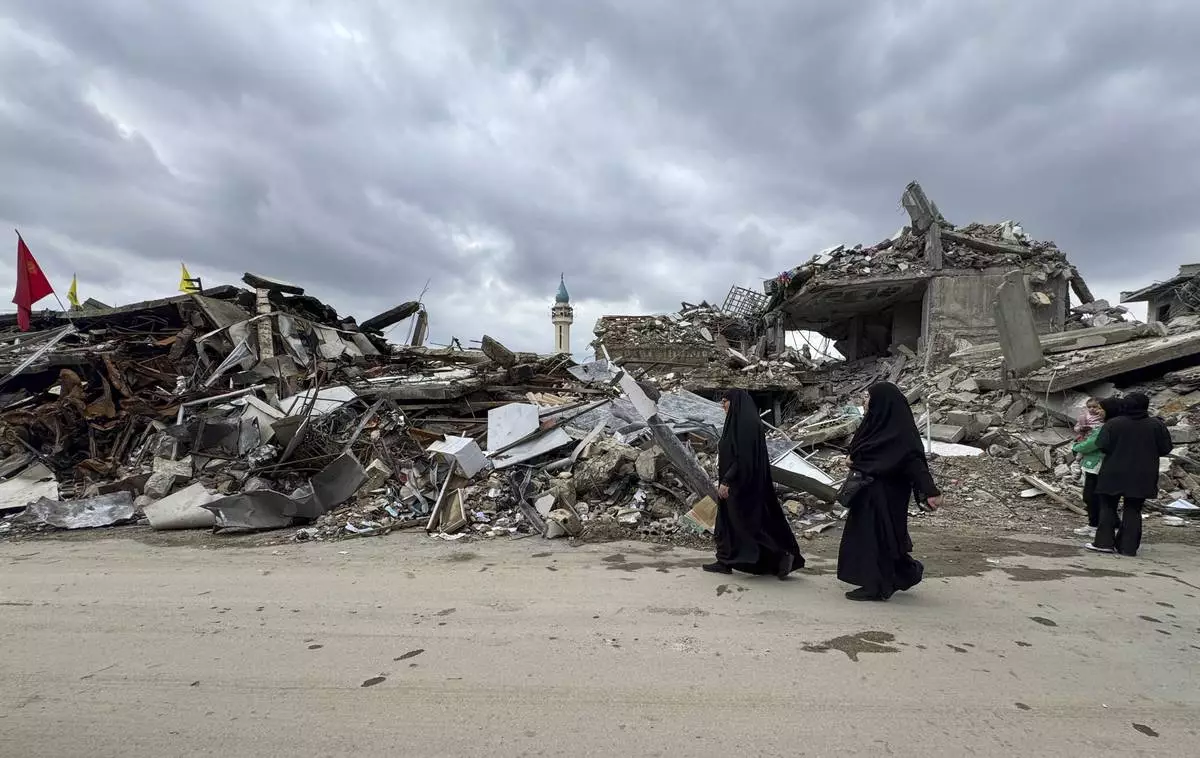
Residents walk past destroyed buildings as they return to Nabatiyeh, southern Lebanon, Thursday, Nov. 28, 2024 following a ceasefire between Israel and Hezbollah that went into effect on Wednesday. (AP Photo/Bassam Hatoum)
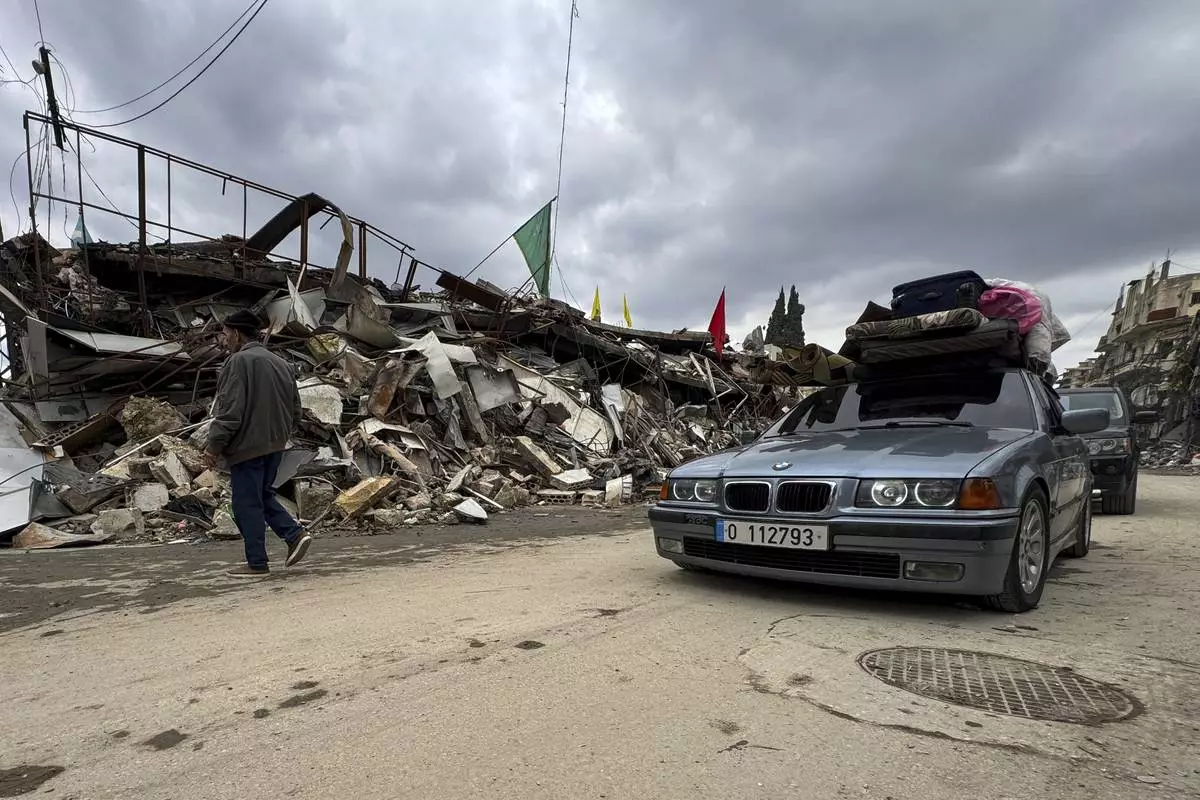
Displaced residents drive past destroyed buildings as they return to Nabatiyeh, southern Lebanon, Thursday, Nov. 28, 2024 following a ceasefire between Israel and Hezbollah that went into effect on Wednesday. (AP Photo/Bassam Hatoum)
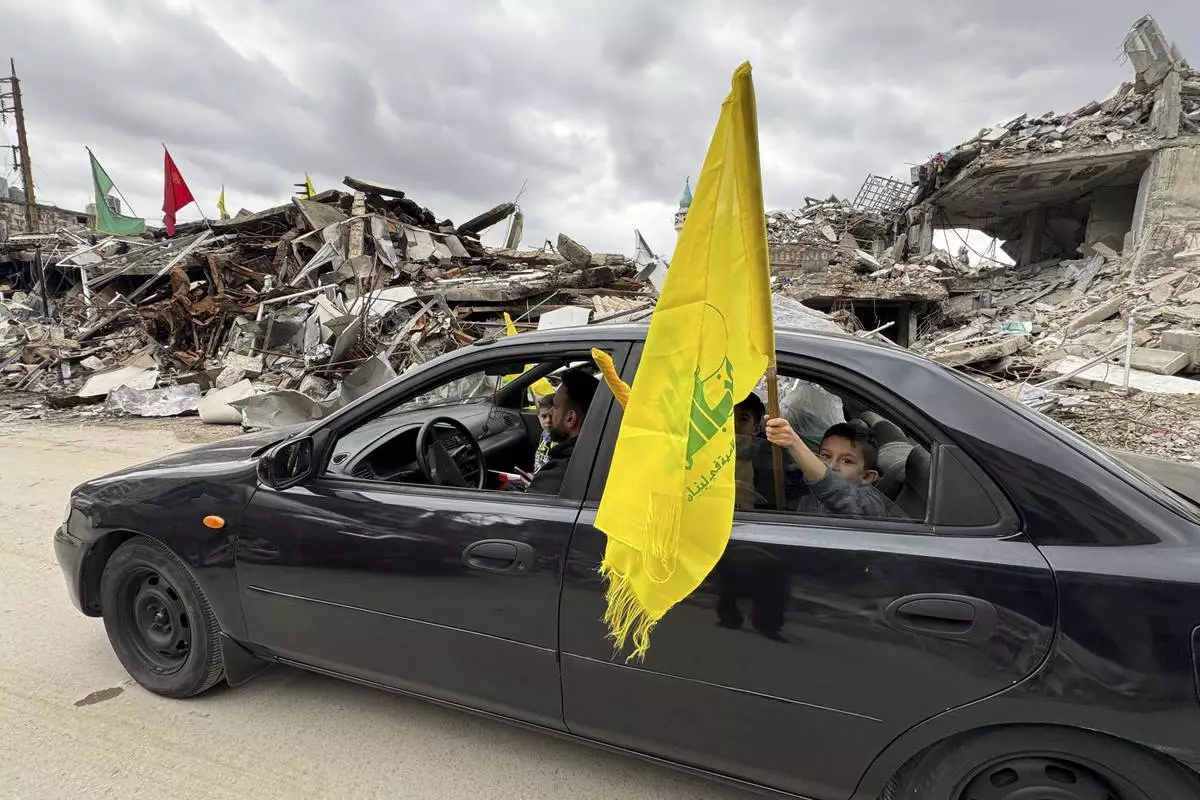
A boy holds a Hezbollah's flag, as displaced residents return to Nabatiyeh, southern Lebanon, Thursday, Nov. 28, 2024 following a ceasefire between Israel and Hezbollah that went into effect on Wednesday. (AP Photo/Bassam Hatoum)
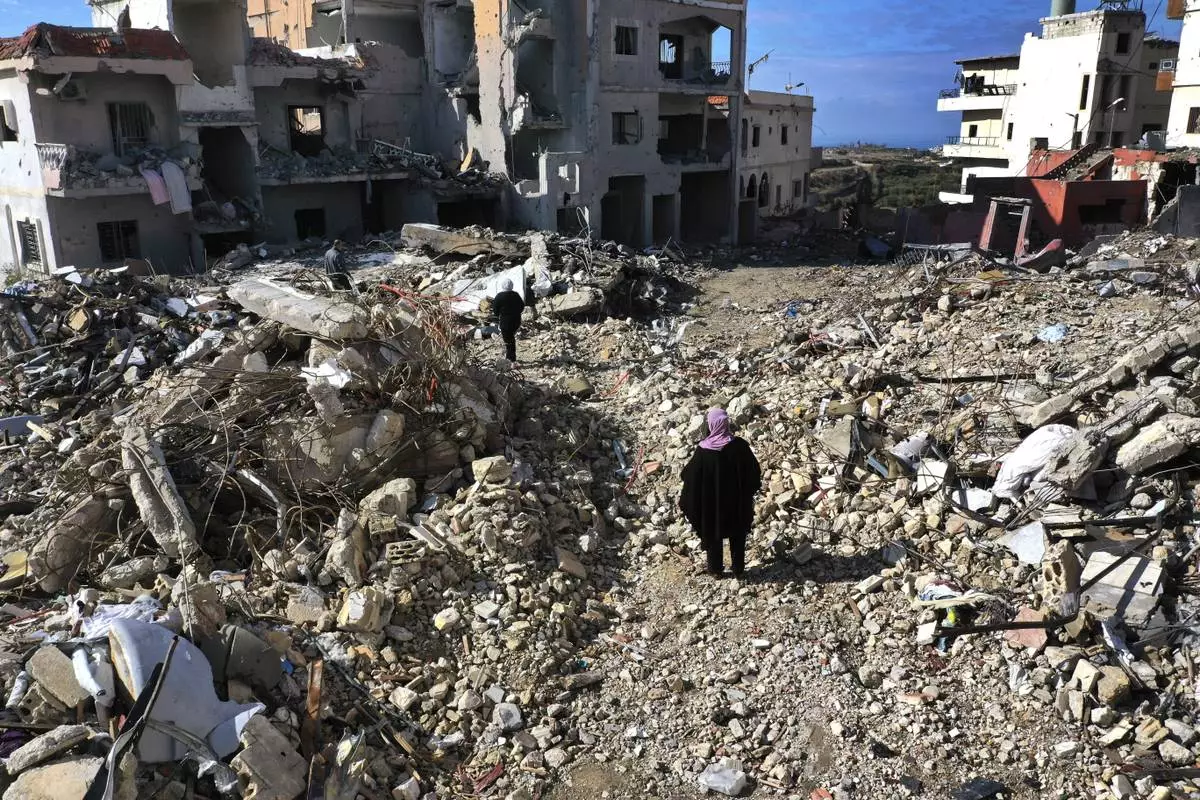
Residents walk past destroyed buildings as they return to Qana village, southern Lebanon, Thursday, Nov. 28, 2024 following a ceasefire between Israel and Hezbollah that went into effect on Wednesday.(AP Photo/Hussein Malla)
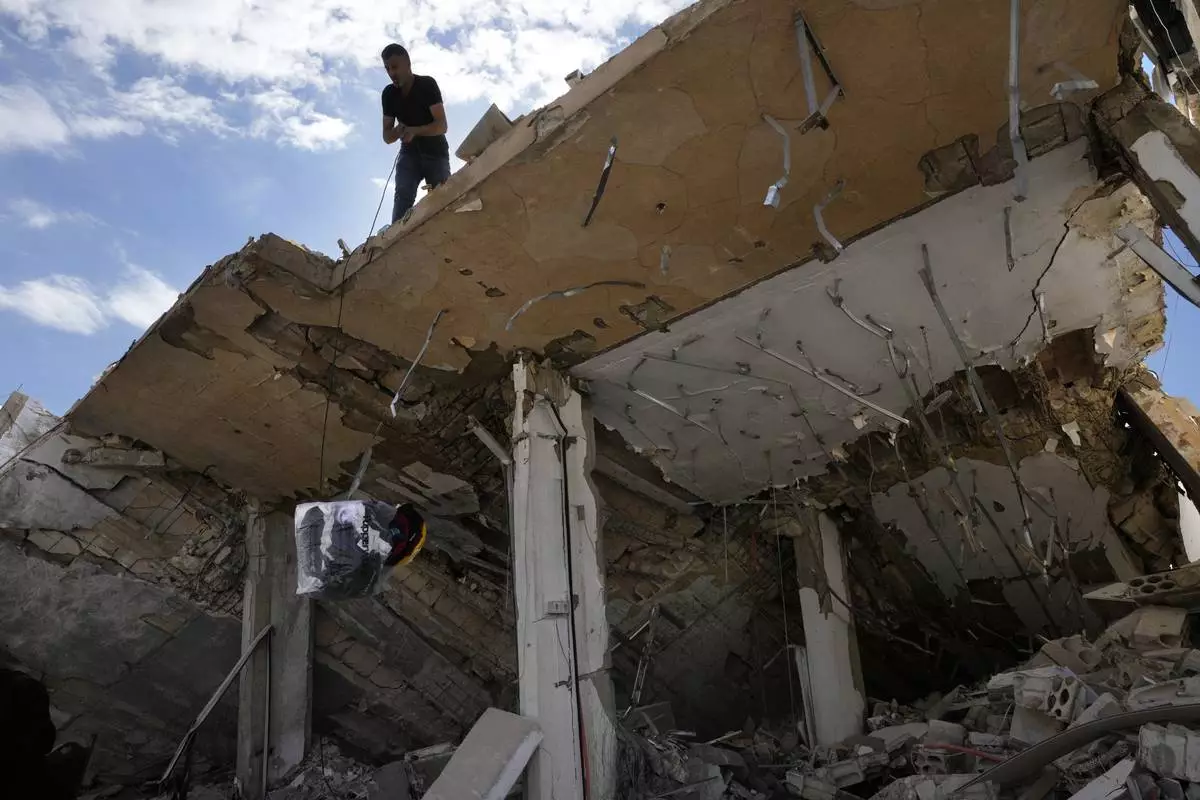
A man lowers a bag of his family's clothing from the roof of his destroyed house after he returned to his village of Hanouiyeh, southern Lebanon, Thursday, Nov. 28, 2024. (AP Photo/Hussein Malla)
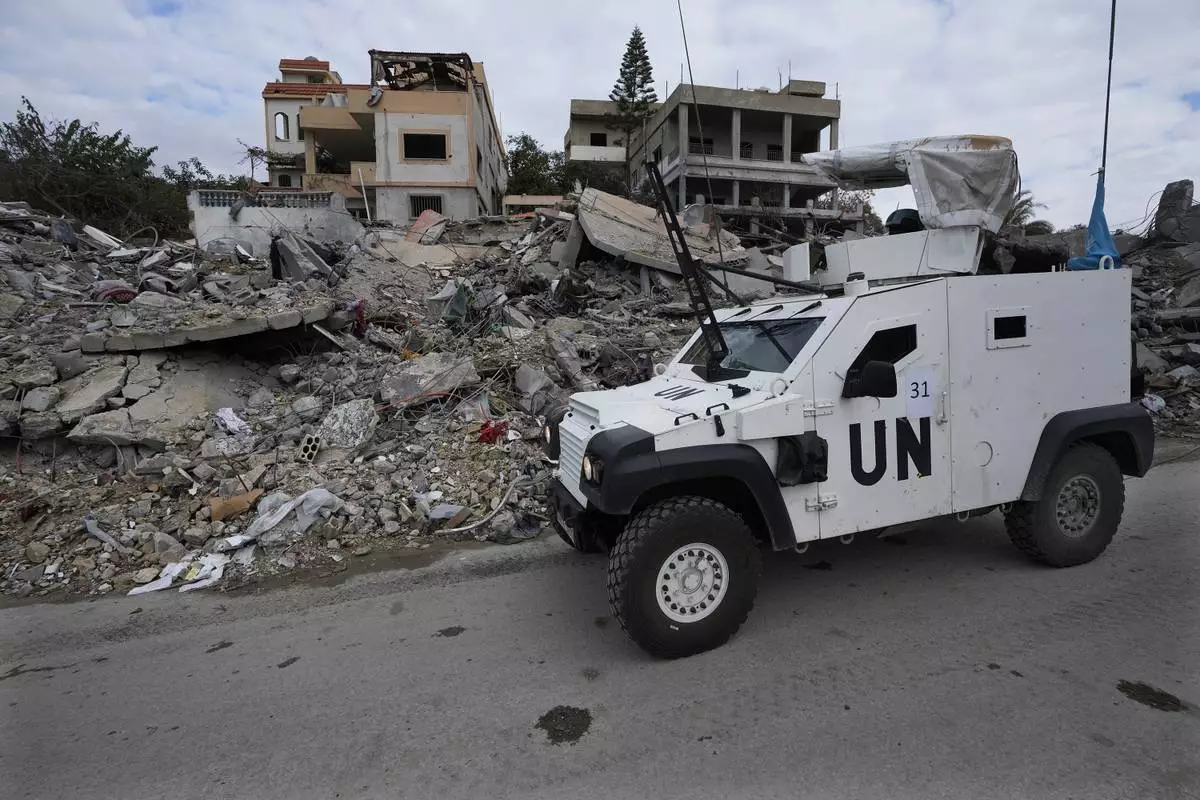
A South Korean U.N peacekeeper armoured vehicle drives by destroyed buildings in Chehabiyeh village, southern Lebanon, Thursday, Nov. 28, 2024 following a ceasefire between Israel and Hezbollah that went into effect on Wednesday. (AP Photo/Hussein Malla)
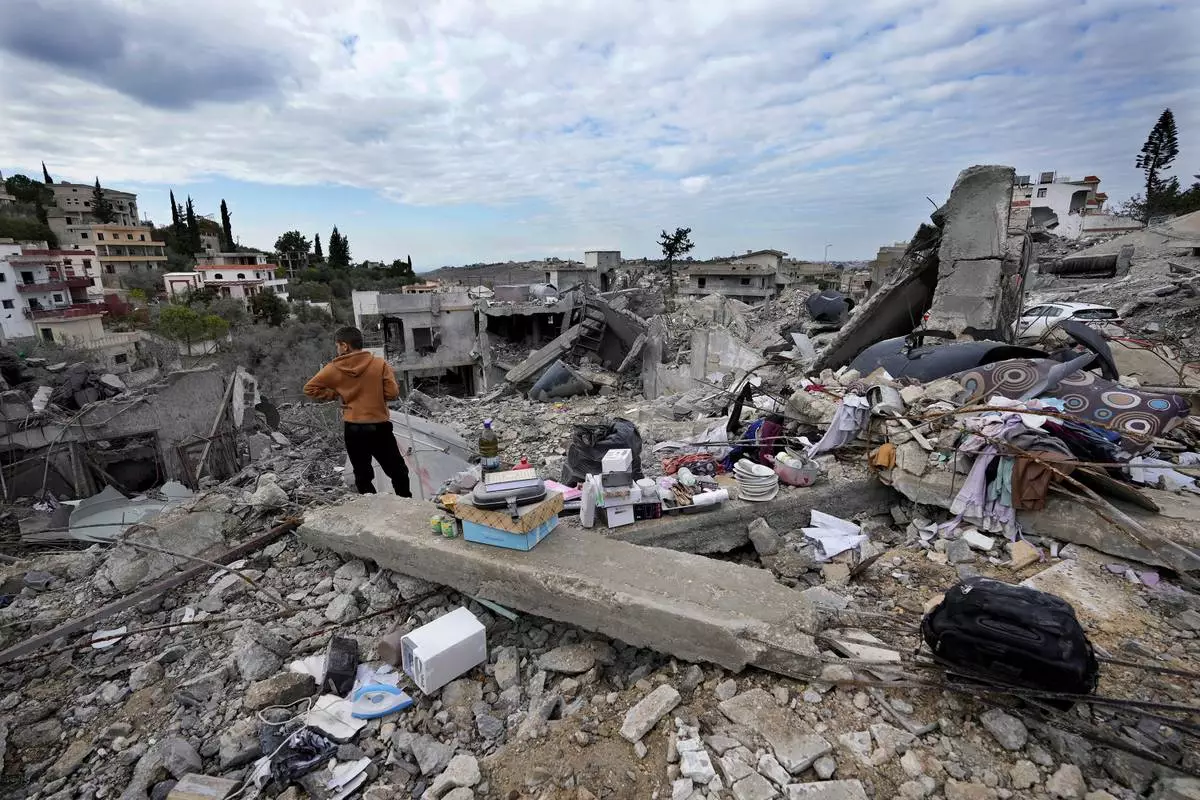
A person stands next to remains and his family destroyed house after he returned to Chehabiyeh village, southern Lebanon, Thursday, Nov. 28, 2024 following a ceasefire between Israel and Hezbollah that went into effect on Wednesday. (AP Photo/Hussein Malla)
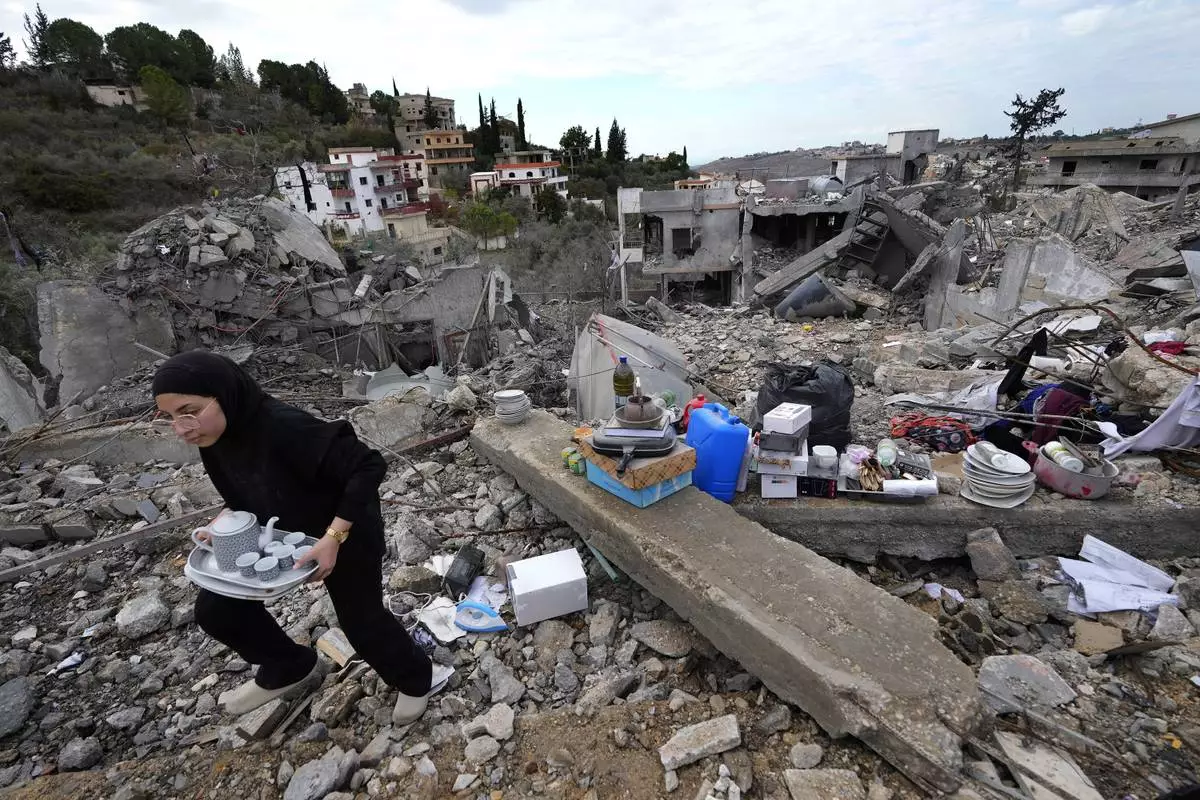
A woman collects the remains of her destroyed house after she returned to Chehabiyeh village, southern Lebanon, Thursday, Nov. 28, 2024 following a ceasefire between Israel and Hezbollah that went into effect on Wednesday.(AP Photo/Hussein Malla)
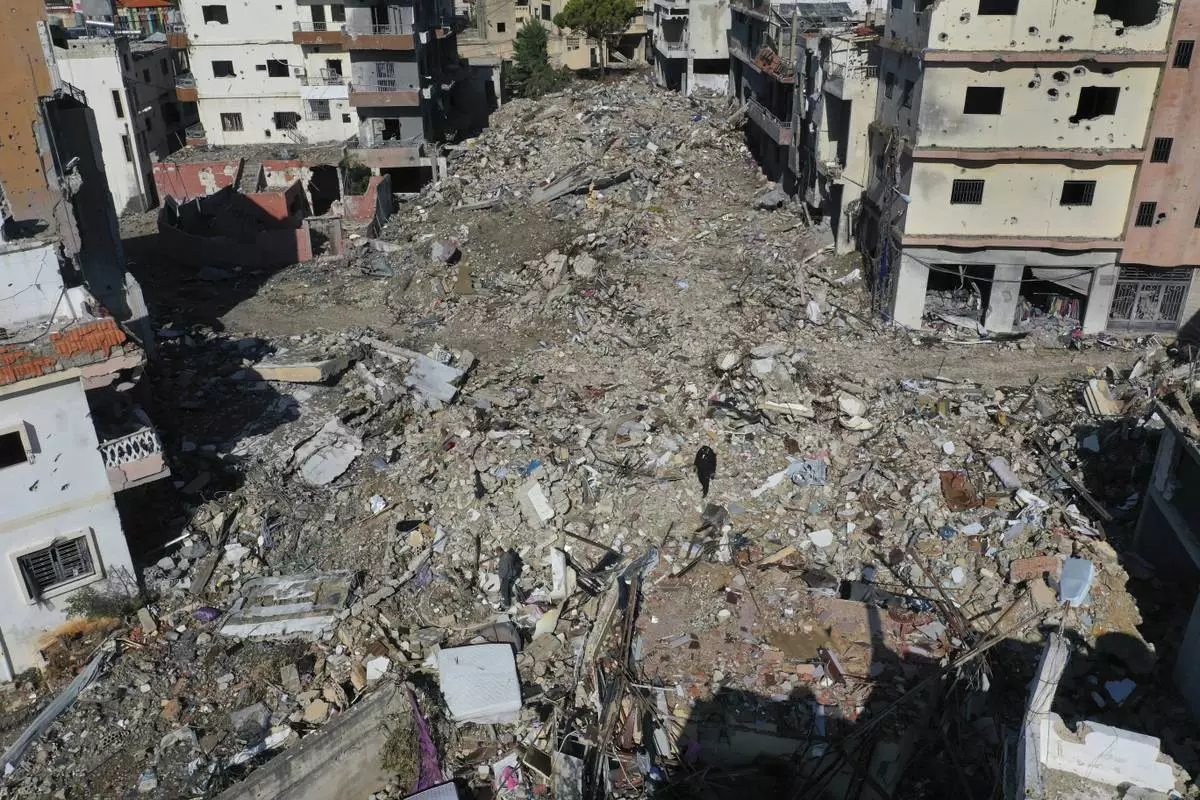
Residents walk on the rubble of destroyed buildings after they returned to Qana village, southern Lebanon, Thursday, Nov. 28, 2024 following a ceasefire between Israel and Hezbollah that went into effect on Wednesday.(AP Photo/Hussein Malla)
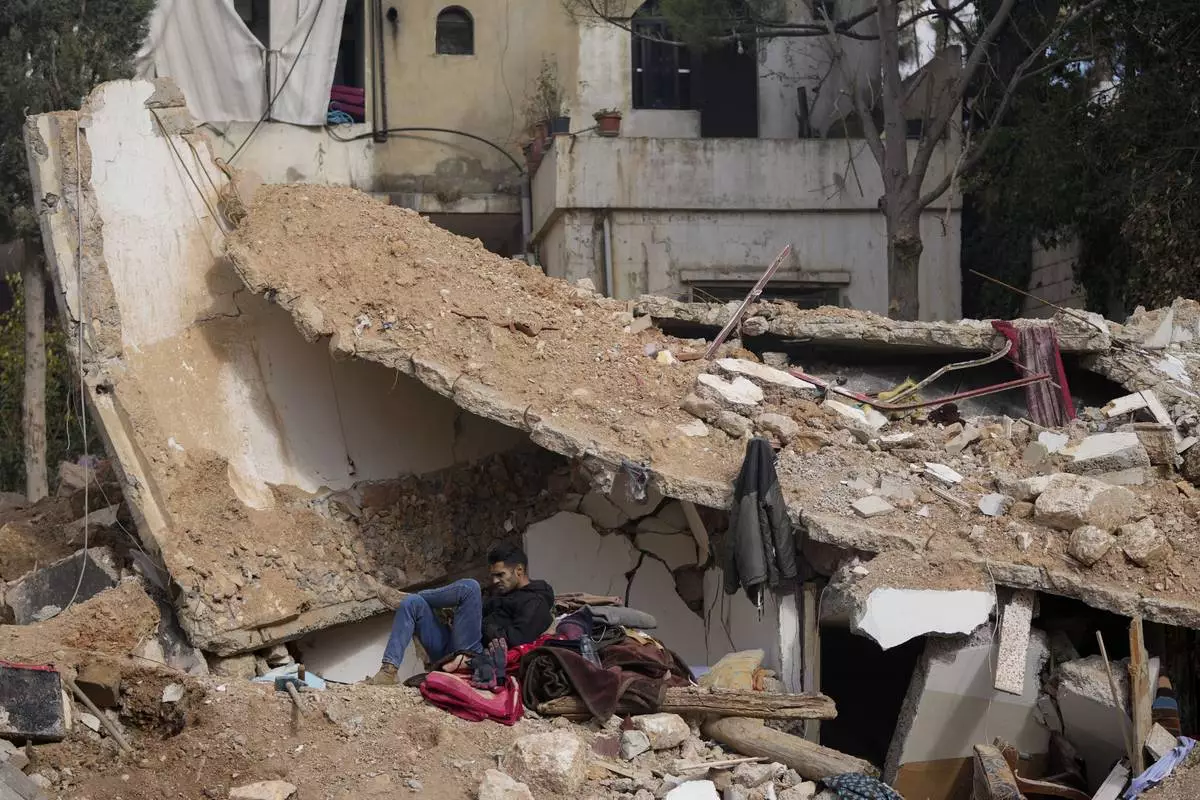
A man sits on the rubble of a destroyed house in Baalbek, eastern Lebanon, Thursday, Nov. 28, 2024. (AP Photo/Hassan Ammar)
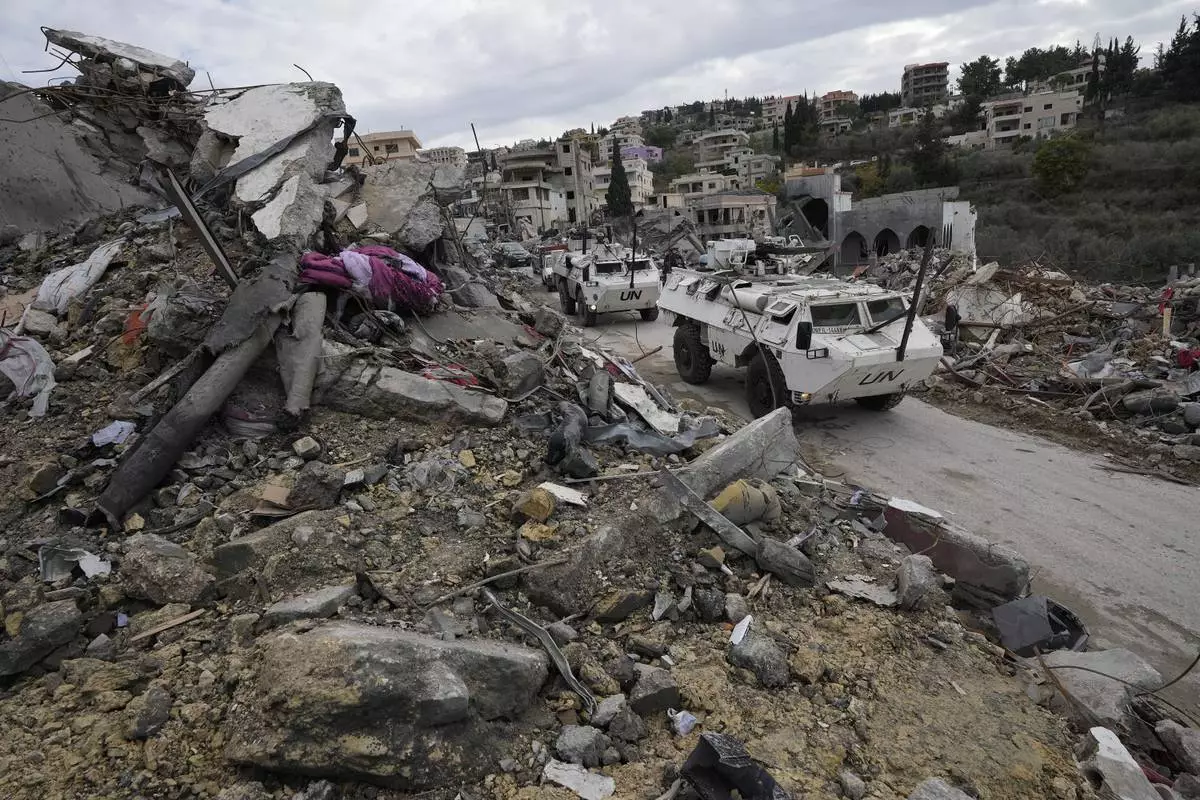
A South Korean U.N peacekeeper patrol drive past destroyed buildings in Chehabiyeh village, southern Lebanon, Thursday, Nov. 28, 2024 following a ceasefire between Israel and Hezbollah that went into effect on Wednesday. (AP Photo/Hussein Malla)
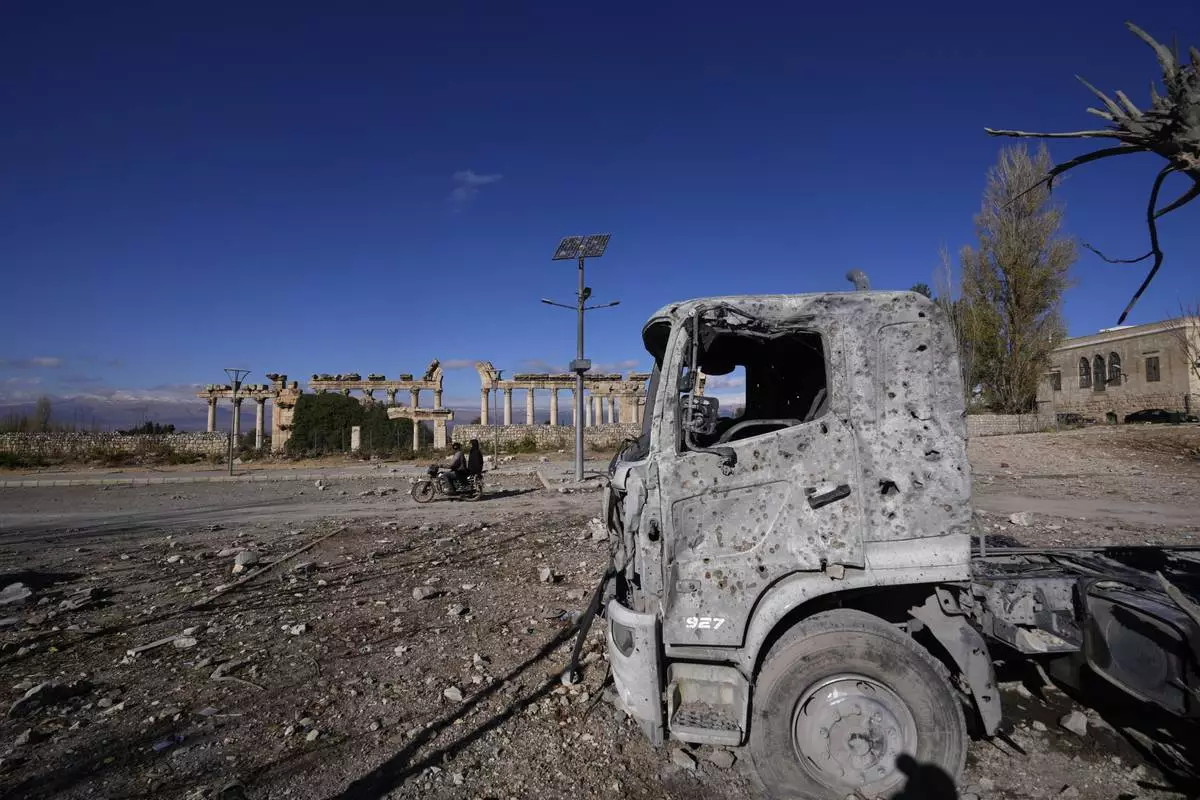
A damaged vehicle seen in front of part of the Roman temples of Baalbek in eastern Lebanon, Thursday, Nov. 28, 2024. (AP Photo/Hassan Ammar)
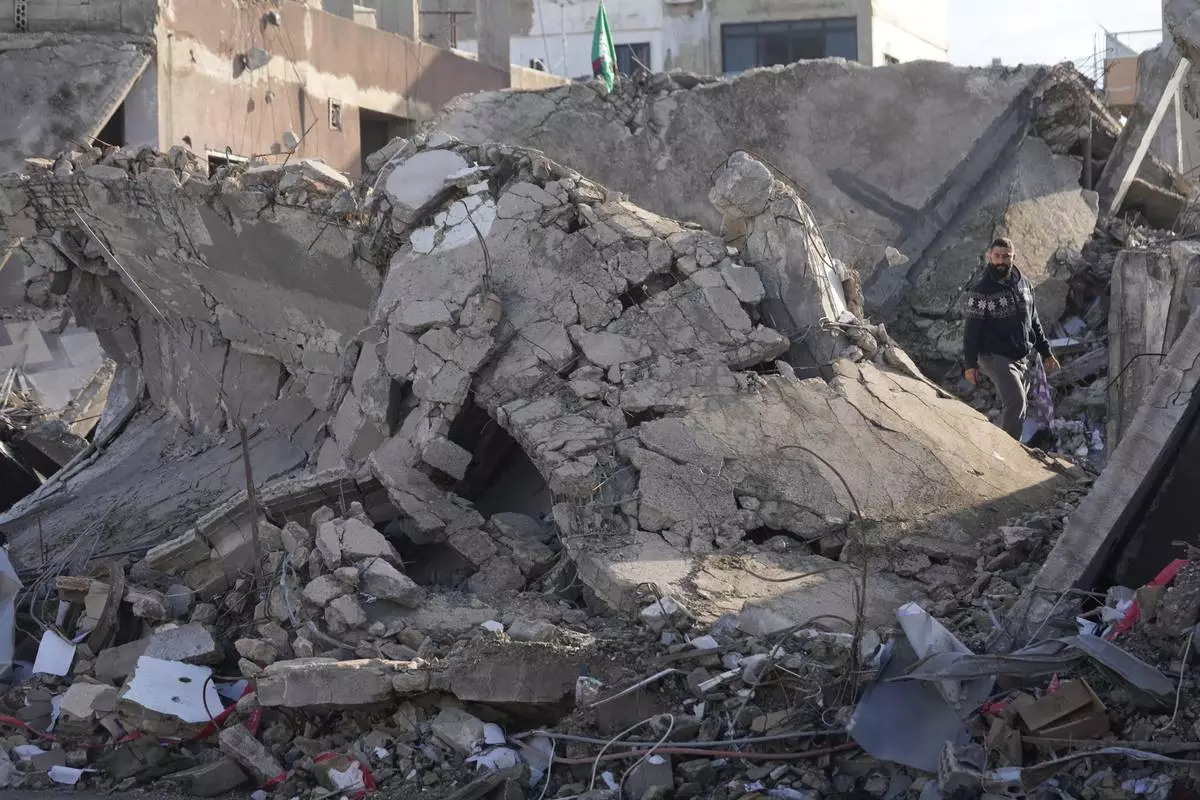
A man stands on the rubble of a destroyed building that housed his apartment in Tyre, southern Lebanon, Thursday, Nov. 28, 2024. (AP Photo/Hussein Malla)
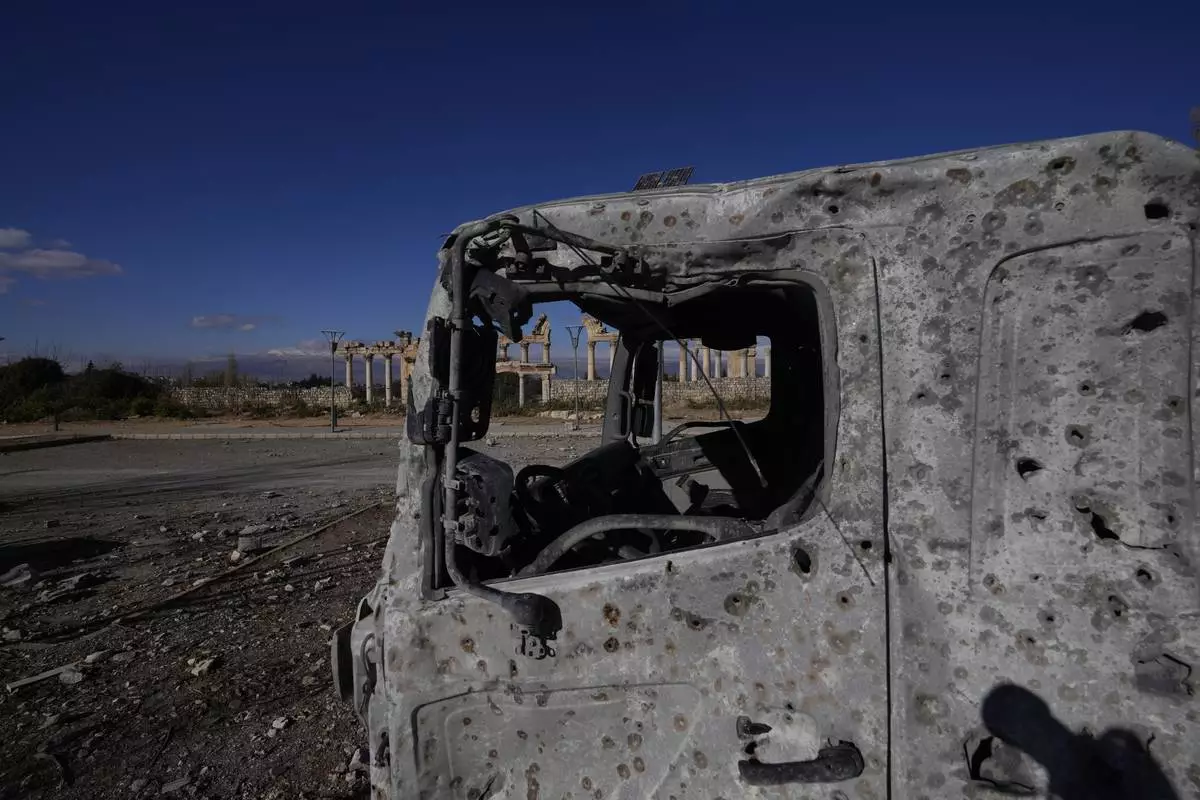
A damaged vehicle seen in front of part of the Roman temples of Baalbek in eastern Lebanon, Thursday, Nov. 28, 2024. (AP Photo/Hassan Ammar)
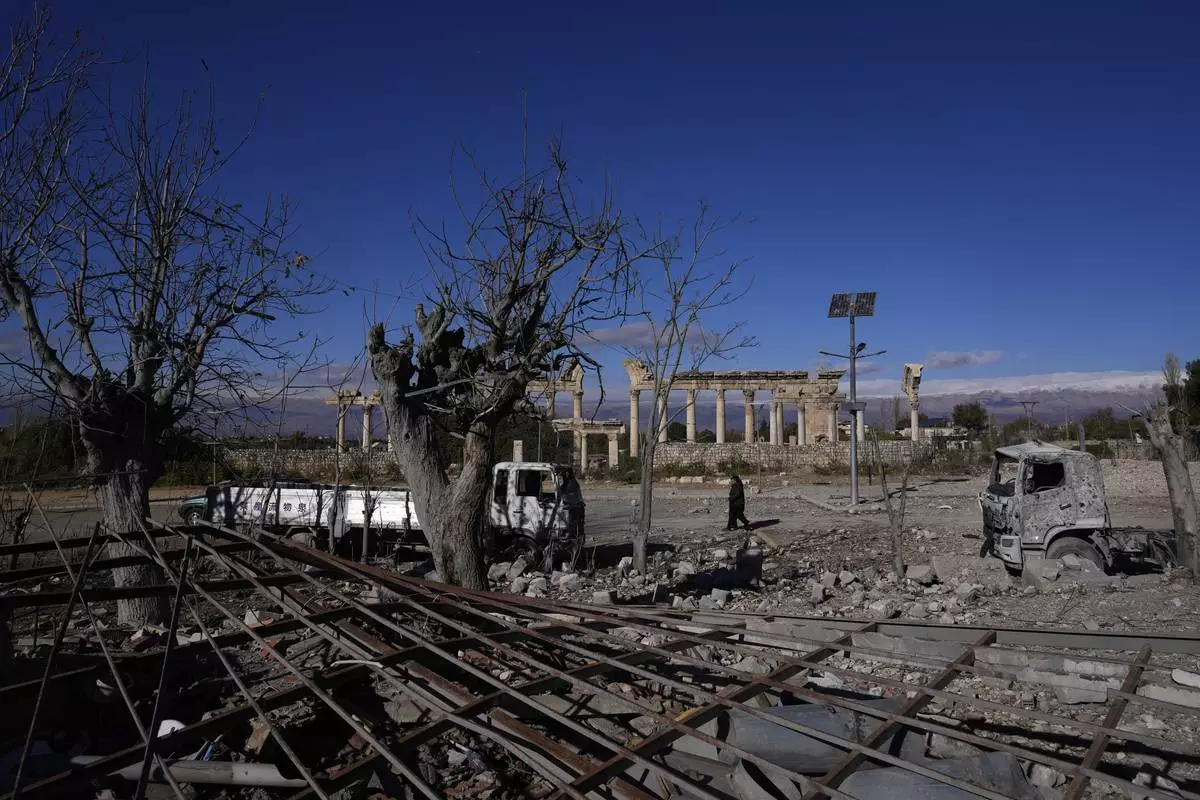
Damaged vehicles seen in front part of the Roman temples of Baalbek in eastern Lebanon, Thursday, Nov. 28, 2024. (AP Photo/Hassan Ammar)
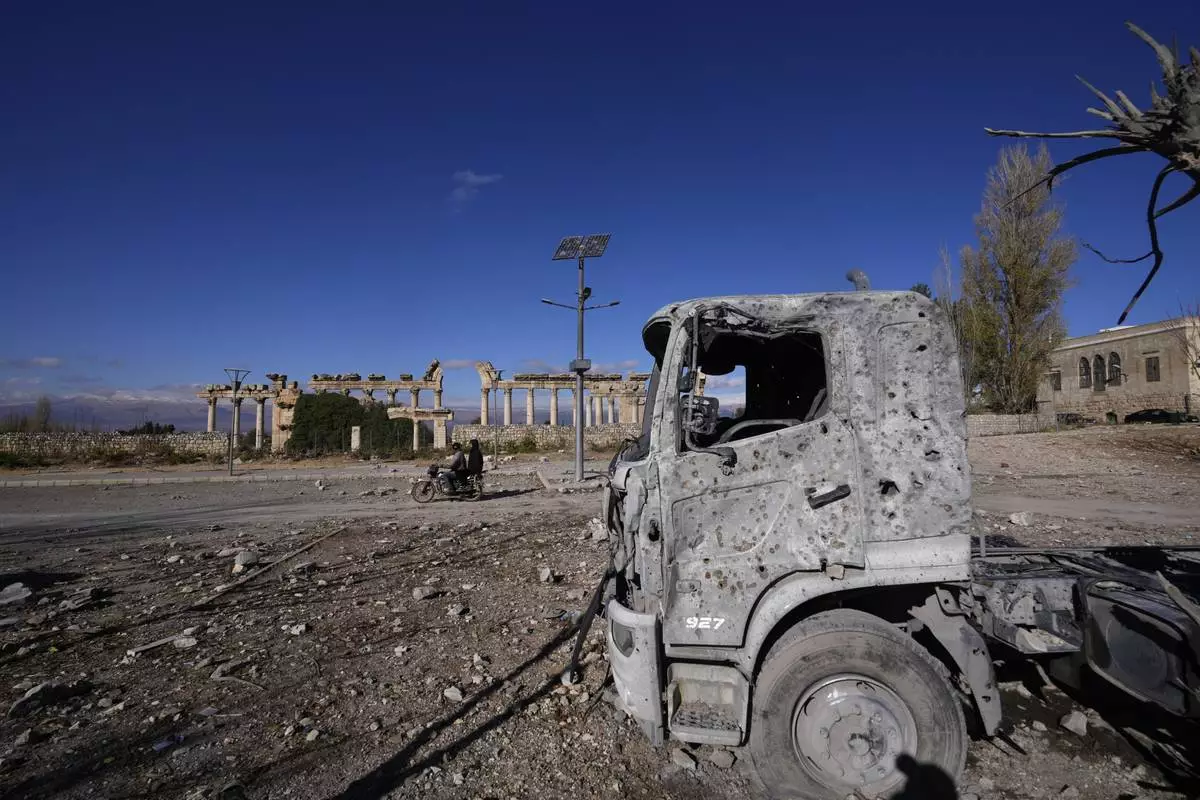
A damaged vehicle seen in front of part of the Roman temples of Baalbek in eastern Lebanon, Thursday, Nov. 28, 2024. (AP Photo/Hassan Ammar)
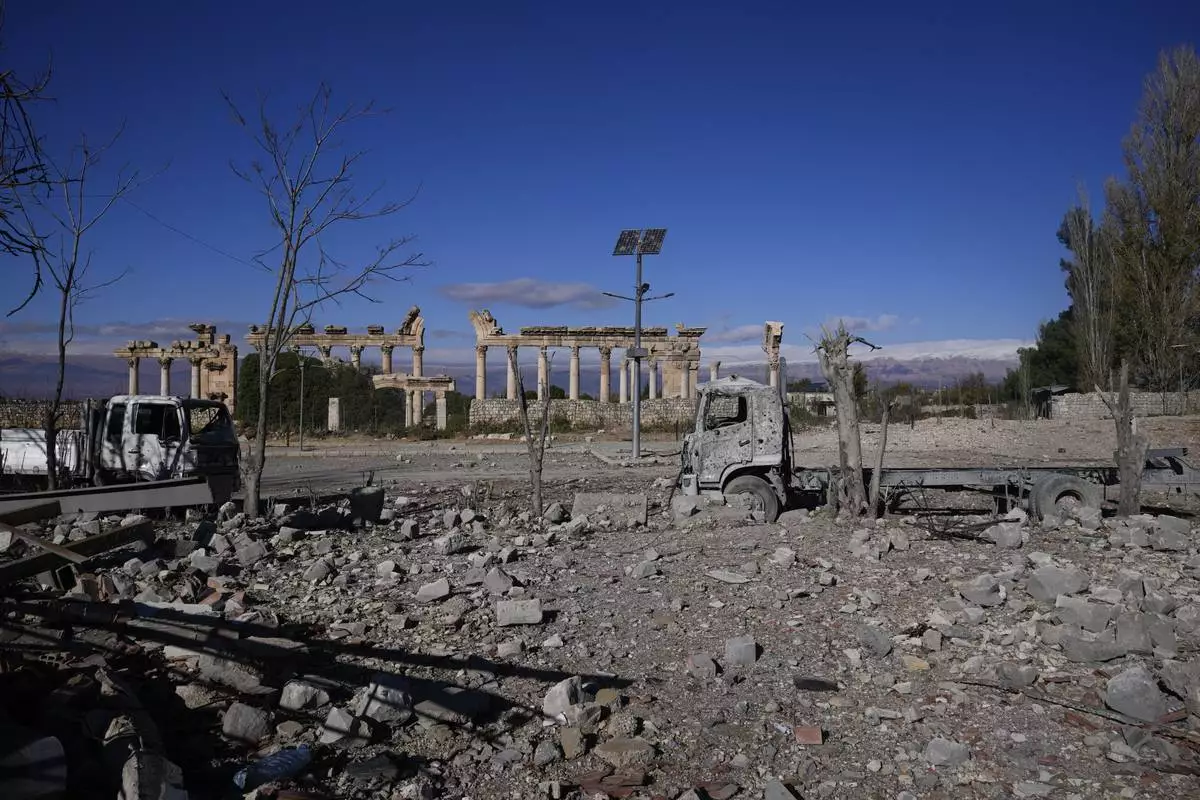
Damaged vehicles seen in front of the Roman temples of Baalbek in eastern Lebanon, Thursday, Nov. 28, 2024. (AP Photo/Hassan Ammar)
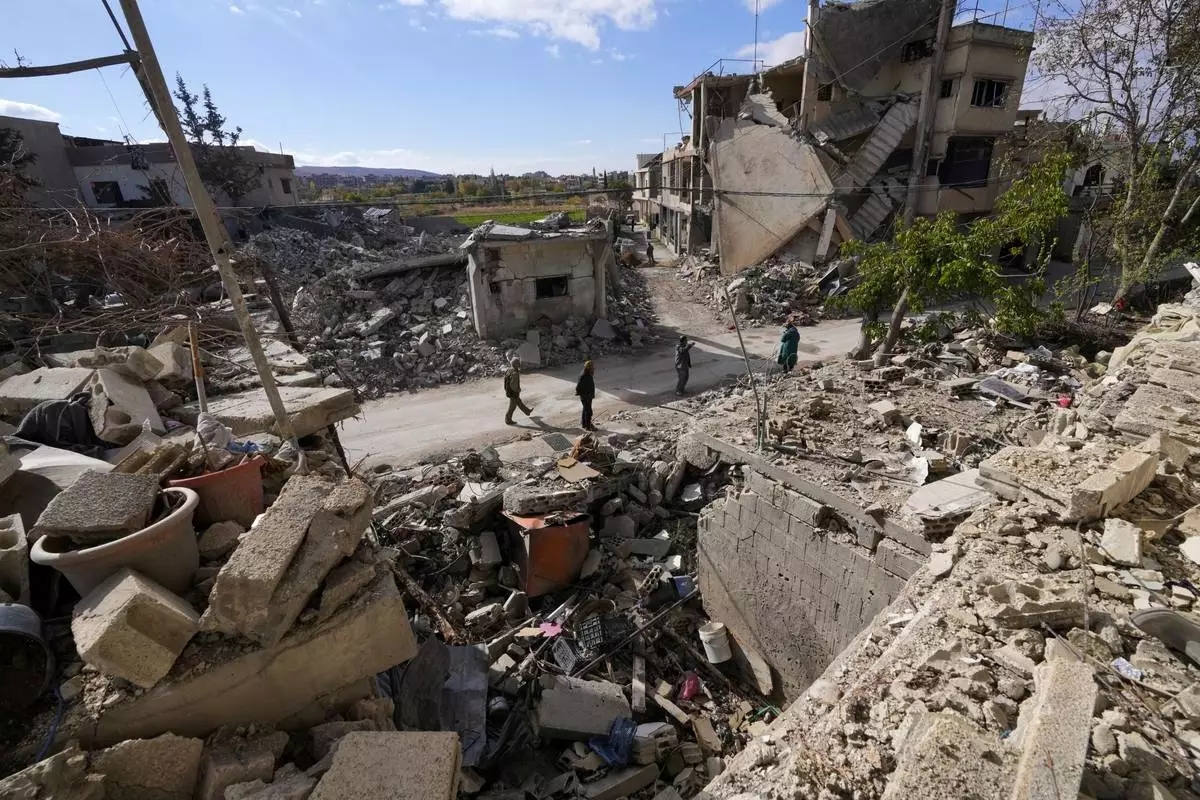
Residents check their destroyed neighborhood in Baalbek, eastern Lebanon, Thursday, Nov. 28, 2024. (AP Photo/Hassan Ammar)
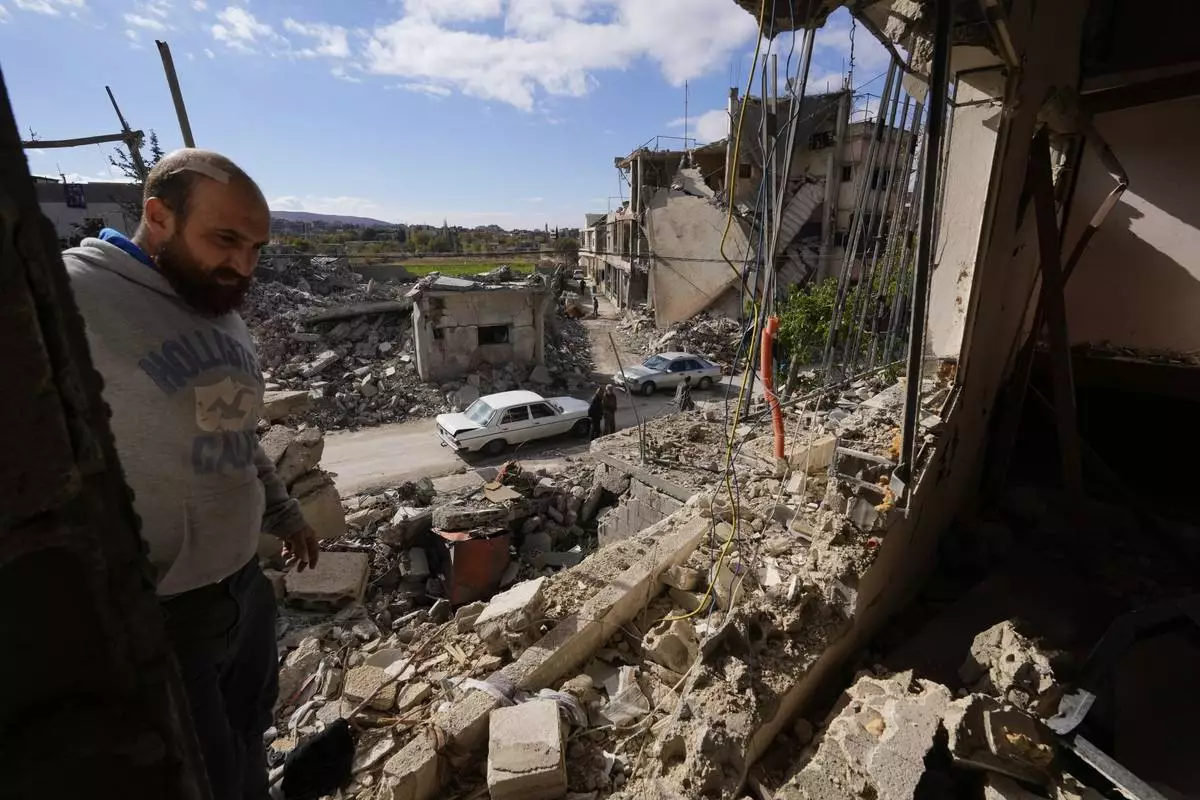
A resident checks a destroyed apartment in Baalbek, eastern Lebanon, Thursday, Nov. 28, 2024. (AP Photo/Hassan Ammar)
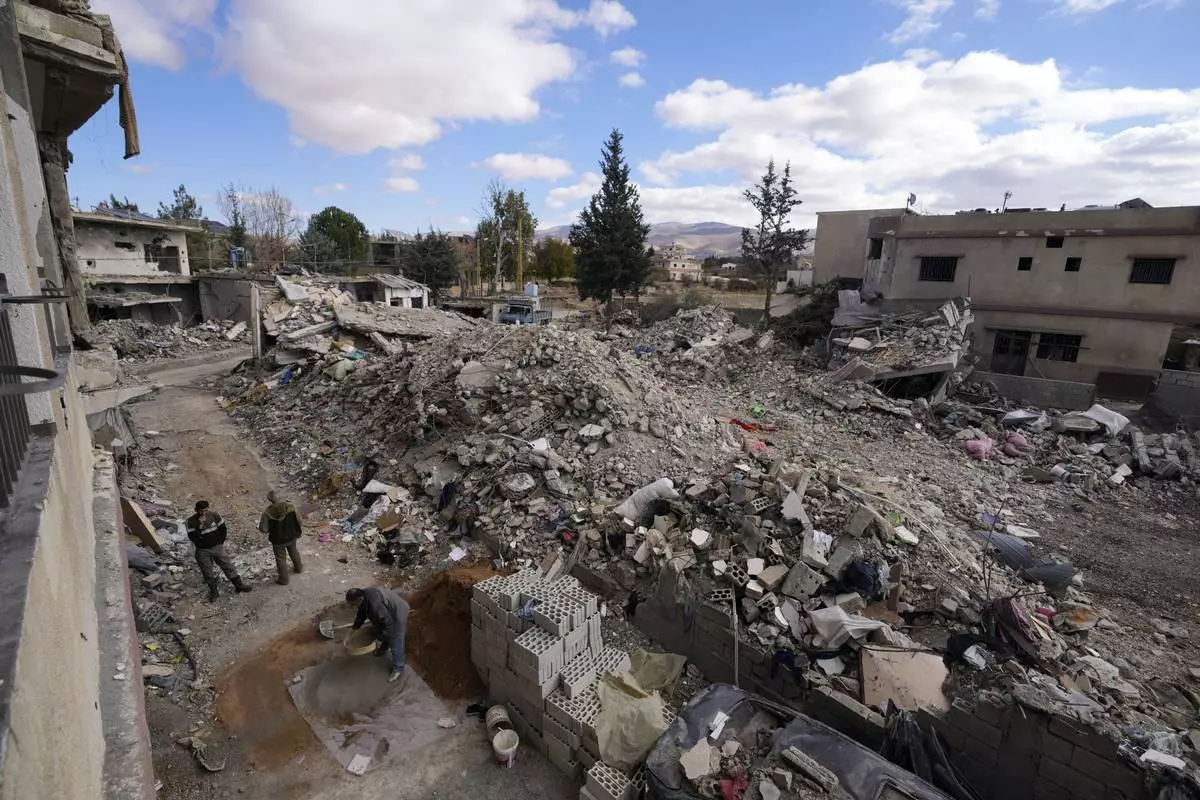
Residents rebuild their houses damaged in Israeli airstrikes, in Baalbek, eastern Lebanon, Thursday, Nov. 28, 2024. (AP Photo/Hassan Ammar)
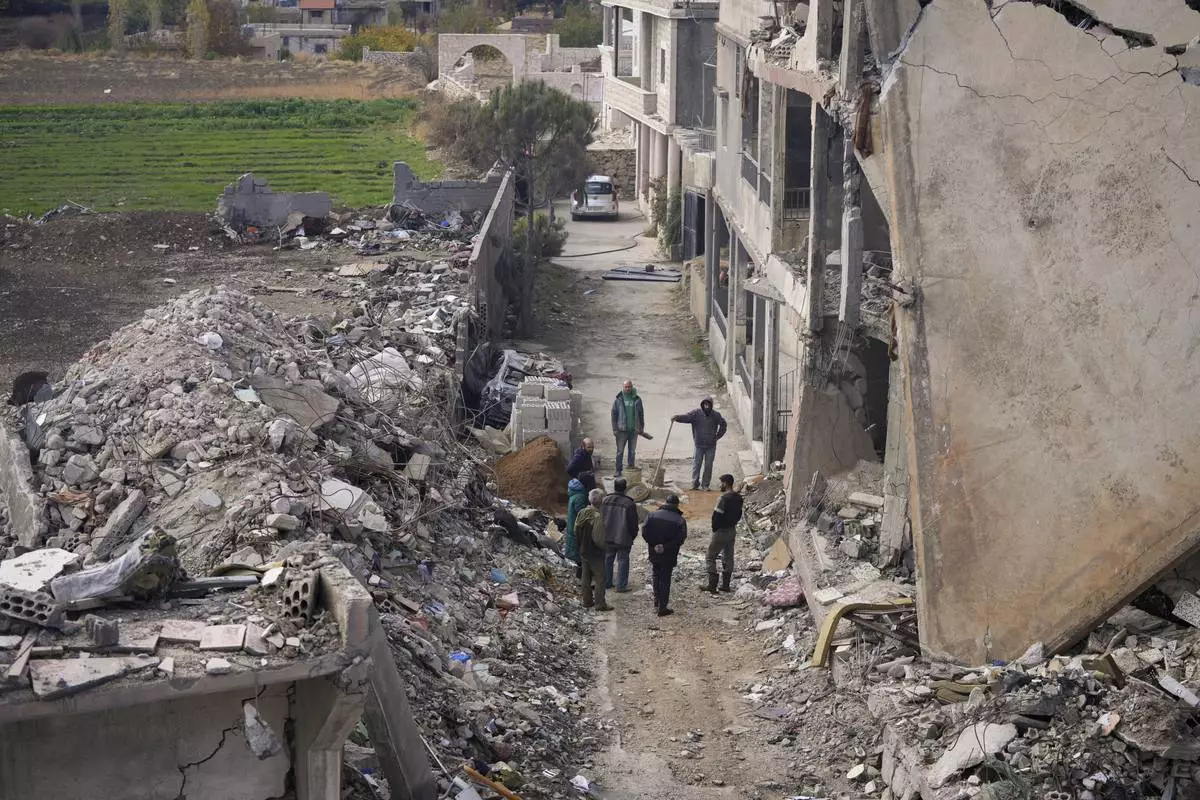
Residents start rebuilding their houses damaged in Israeli airstrikes, in Baalbek, eastern Lebanon, Thursday, Nov. 28, 2024. (AP Photo/Hassan Ammar)
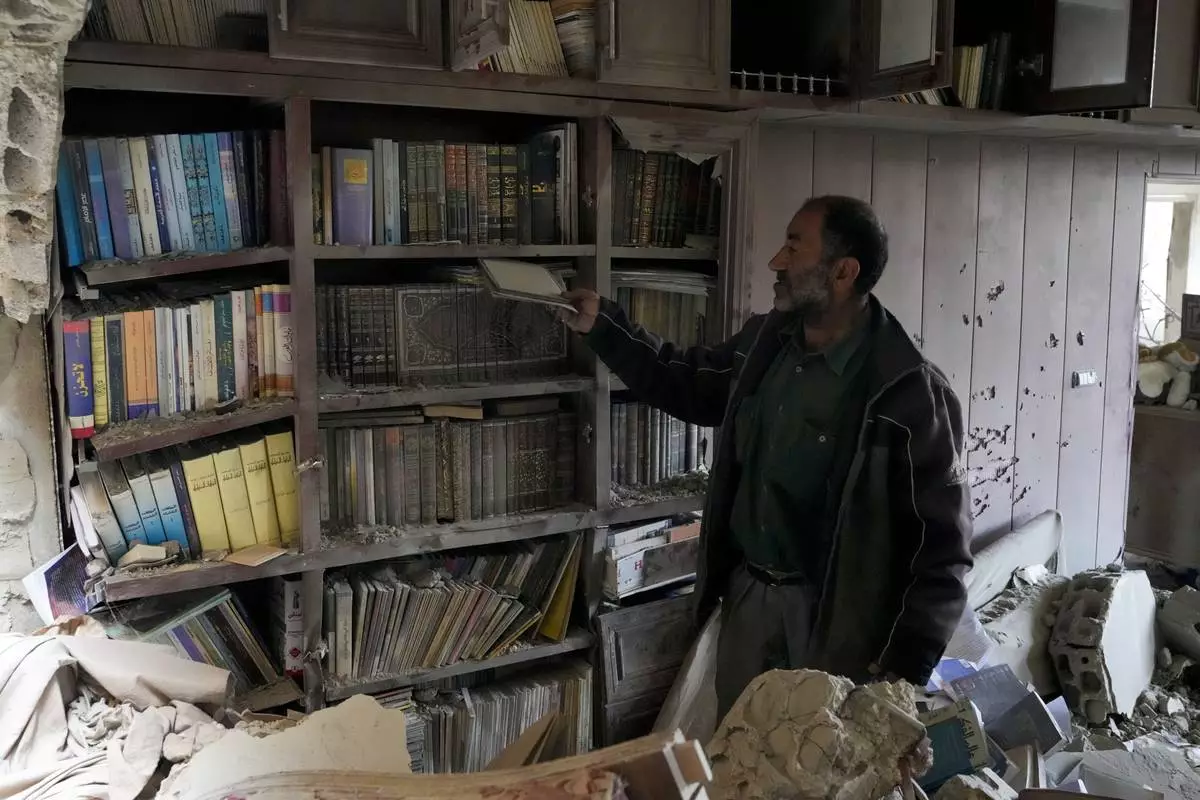
A resident checks a library in a damaged house, in Baalbek, eastern Lebanon, Thursday, Nov. 28, 2024. (AP Photo/Hassan Ammar)
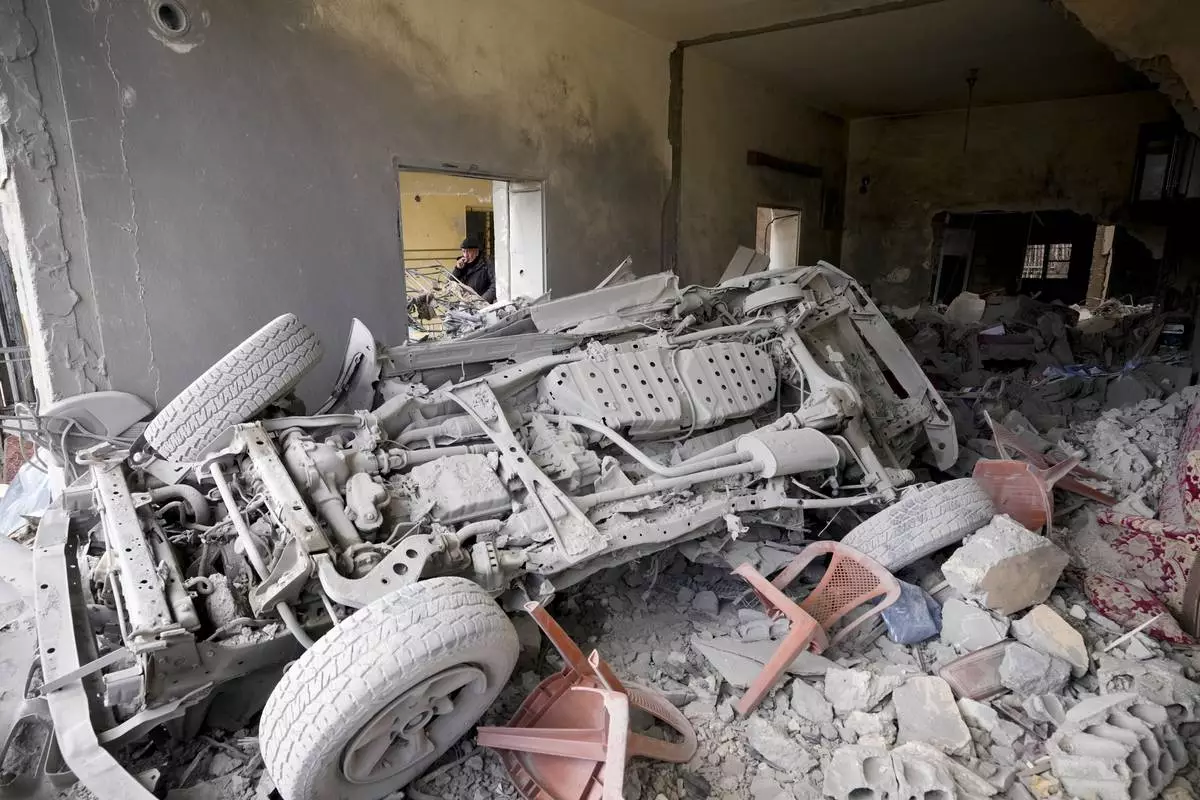
A man inspects a house damaged in Israeli airstrikes, in Baalbek, eastern Lebanon, Thursday, Nov. 28, 2024. (AP Photo/Hassan Ammar)
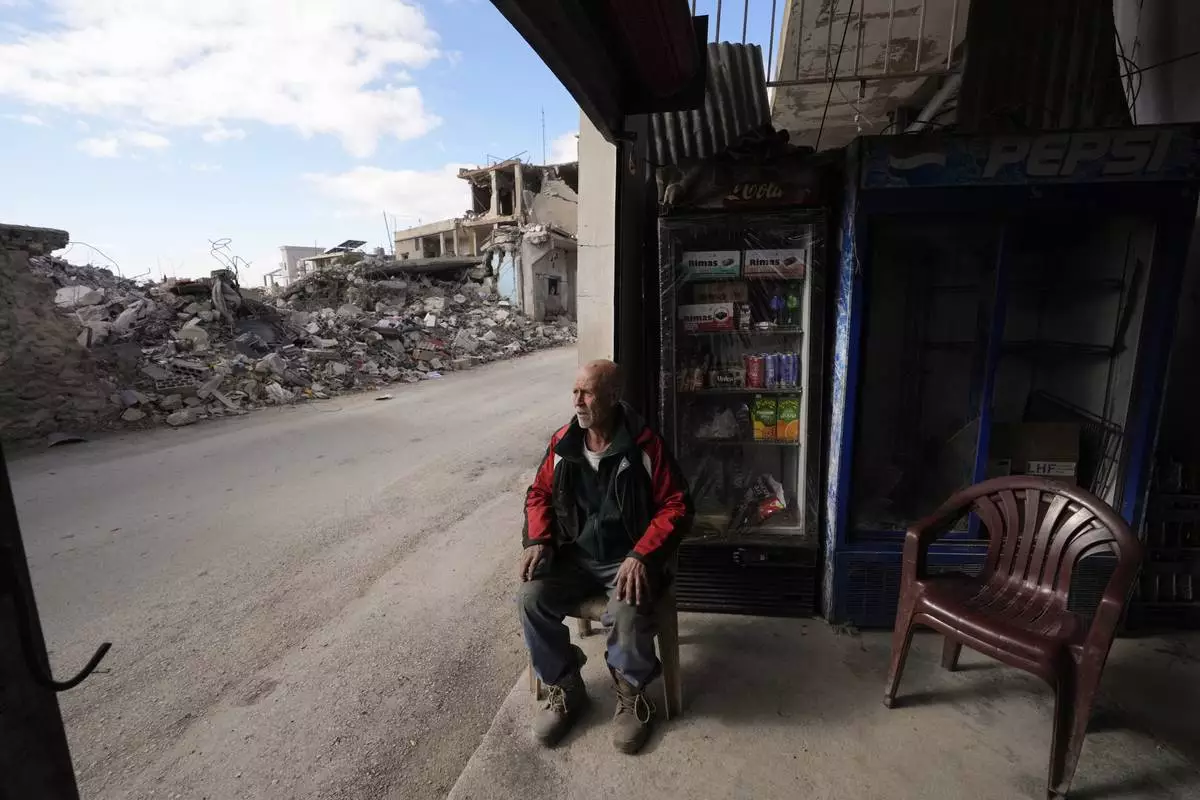
A man who was injured in Israeli airstrikes, sits in his shop near destroyed buildings in Baalbek, eastern Lebanon, Thursday, Nov. 28, 2024. (AP Photo/Hassan Ammar)
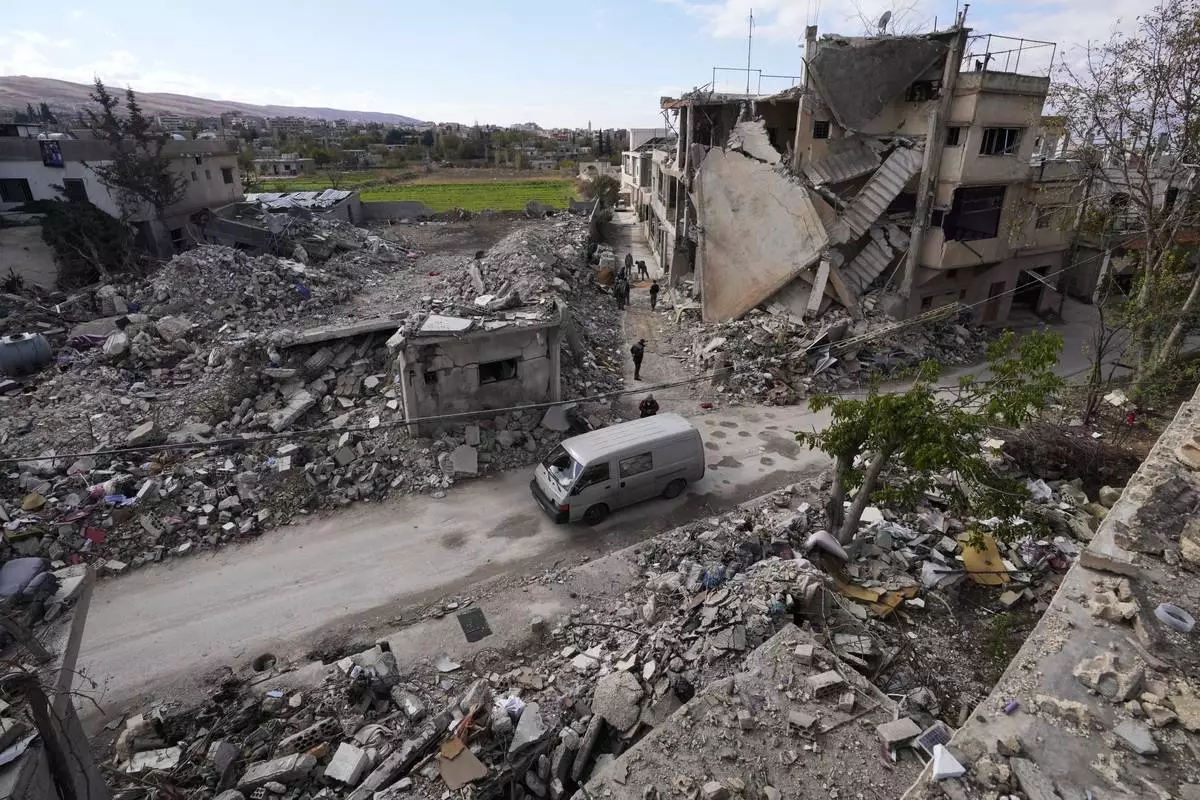
Residents inspect a destroyed neighbourhood in Baalbek, eastern Lebanon, Thursday, Nov. 28, 2024. (AP Photo/Hassan Ammar)
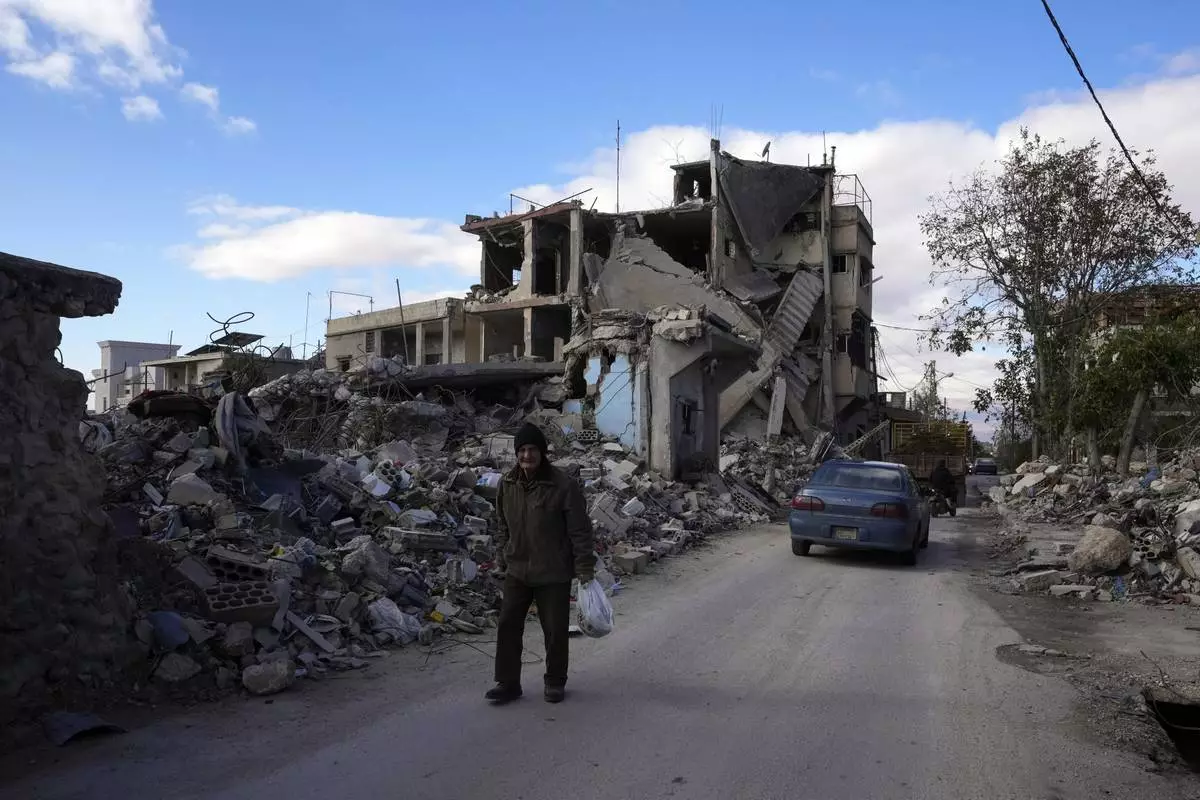
An elderly man walks near damaged buildings in Baalbek, eastern Lebanon, Thursday, Nov. 28, 2024. (AP Photo/Hassan Ammar)
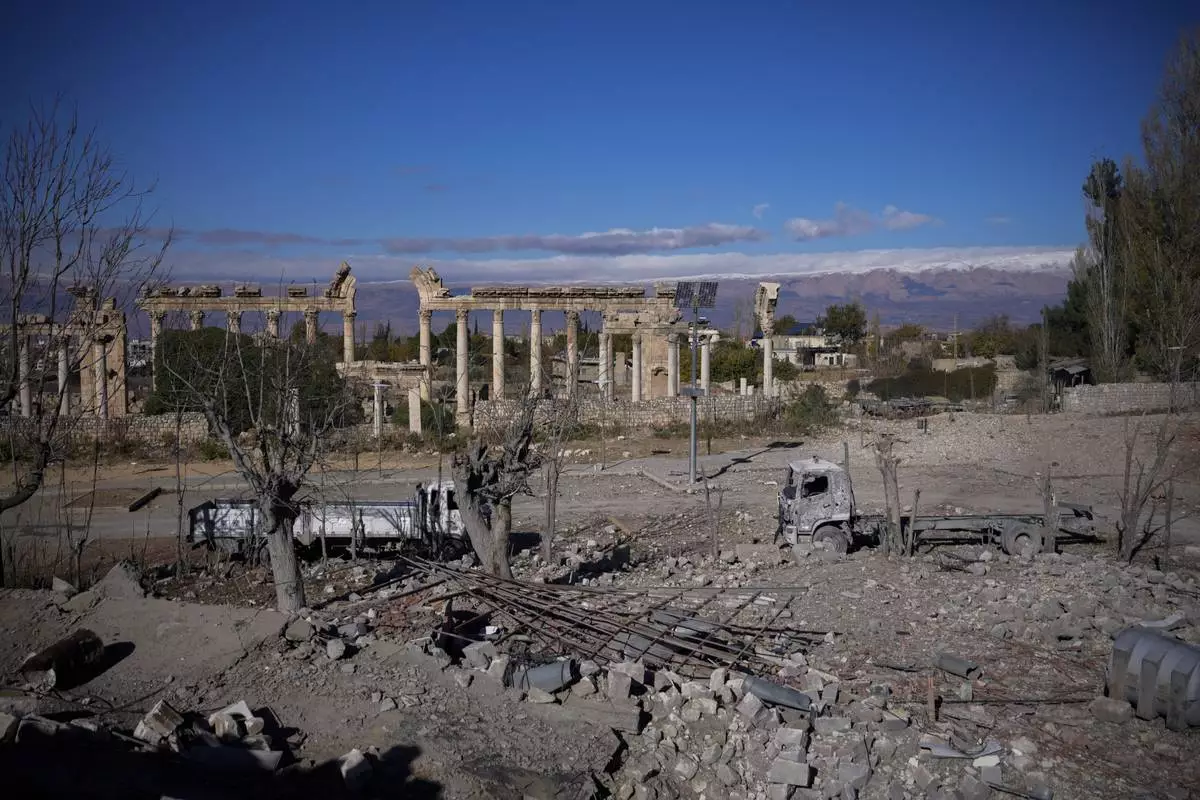
Damaged vehicles seen in front of the Roman temples of Baalbek in eastern Lebanon, Thursday, Nov. 28, 2024. (AP Photo/Hassan Ammar)





